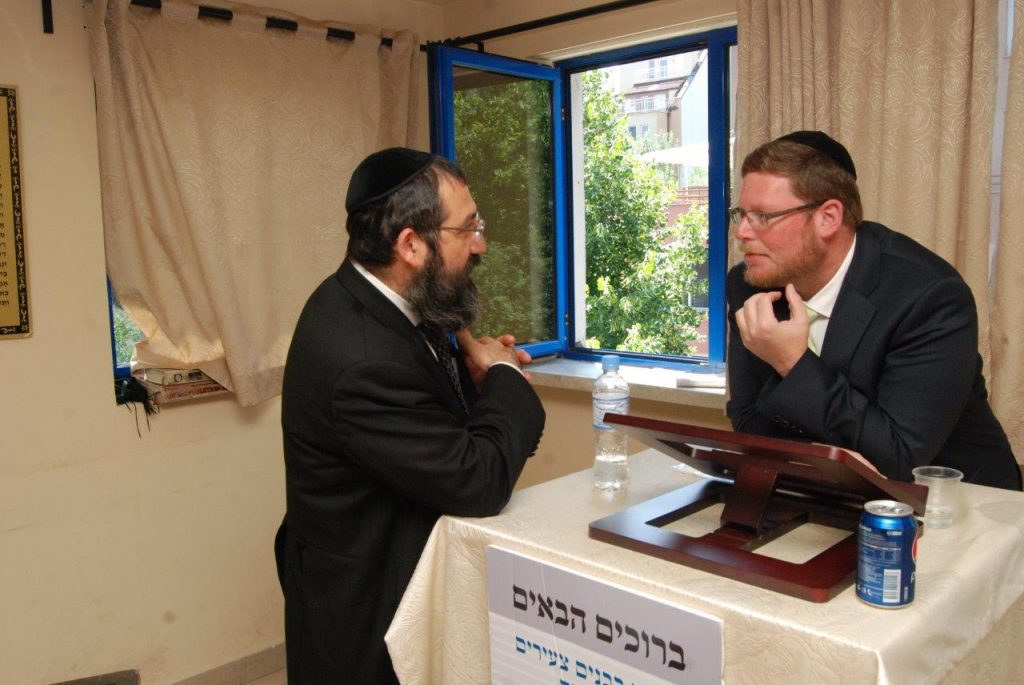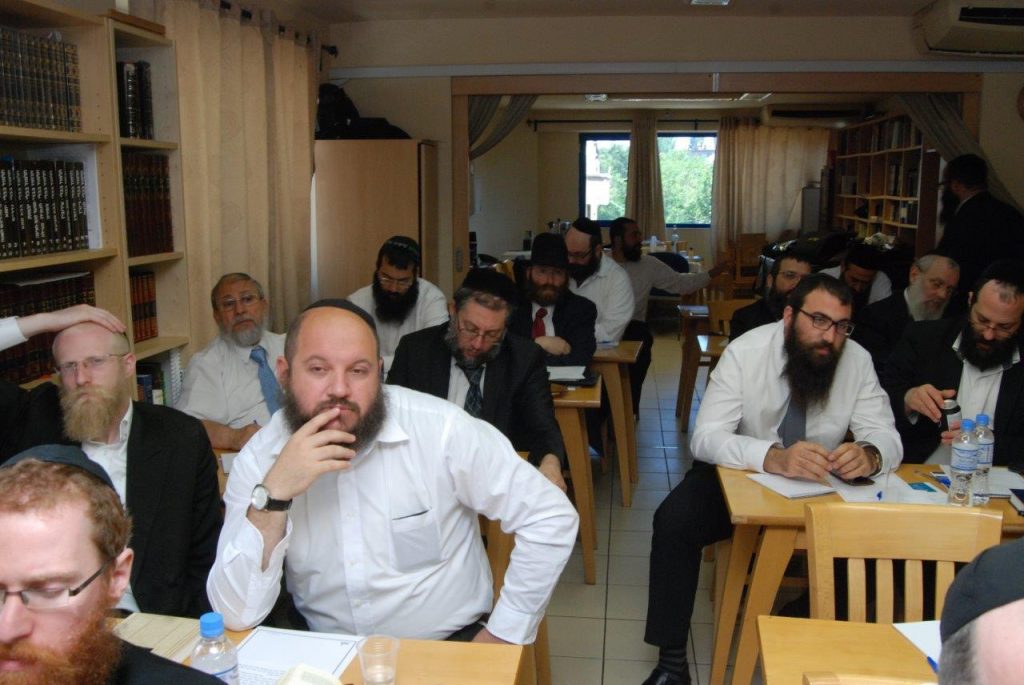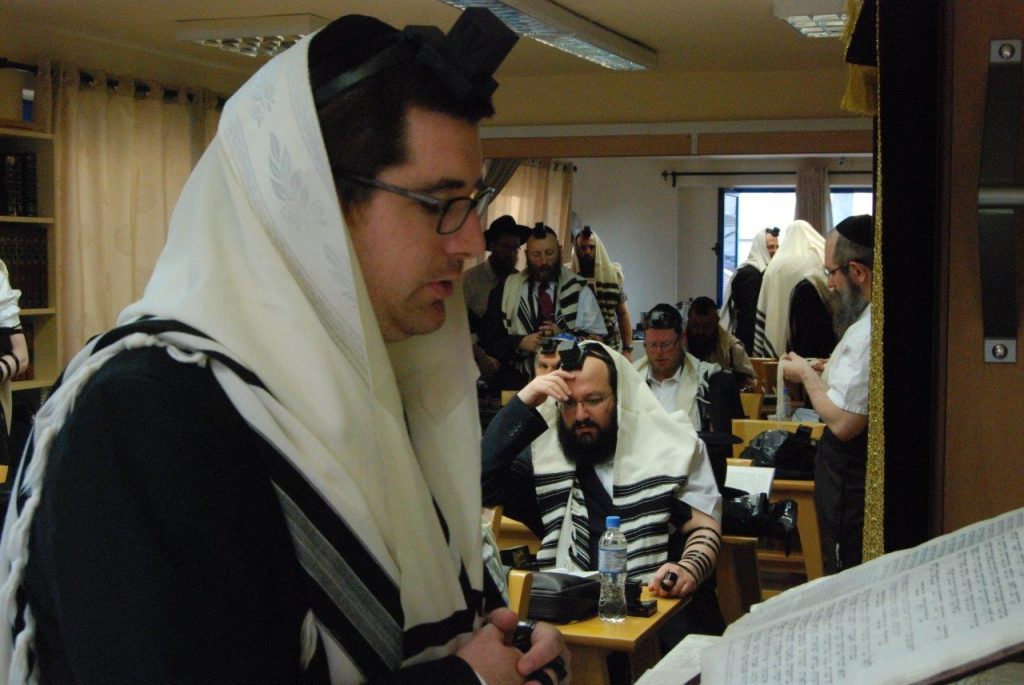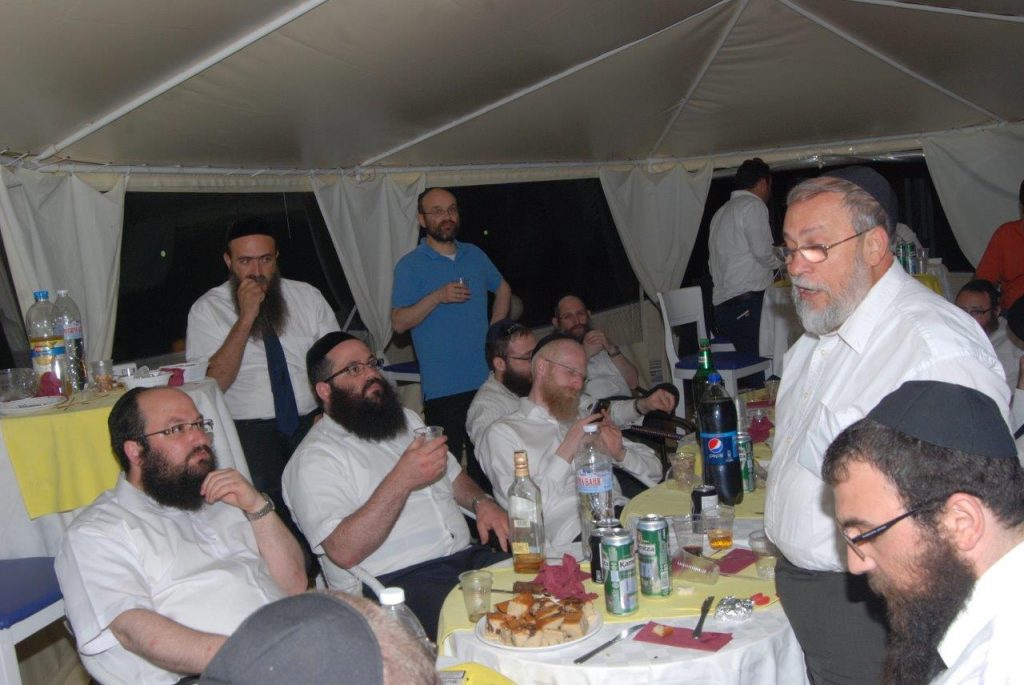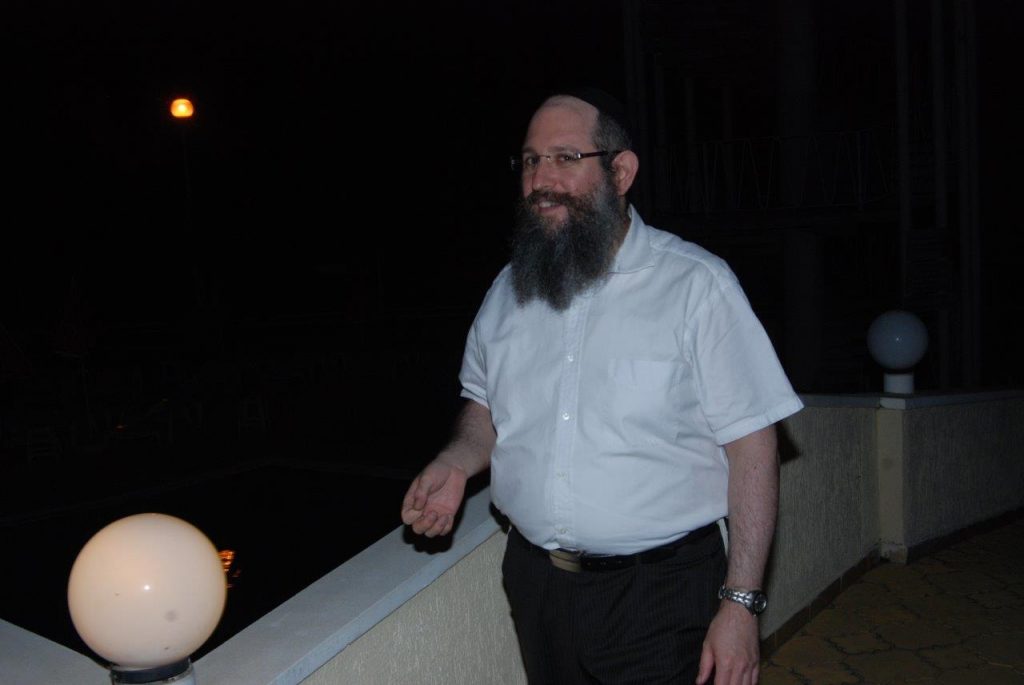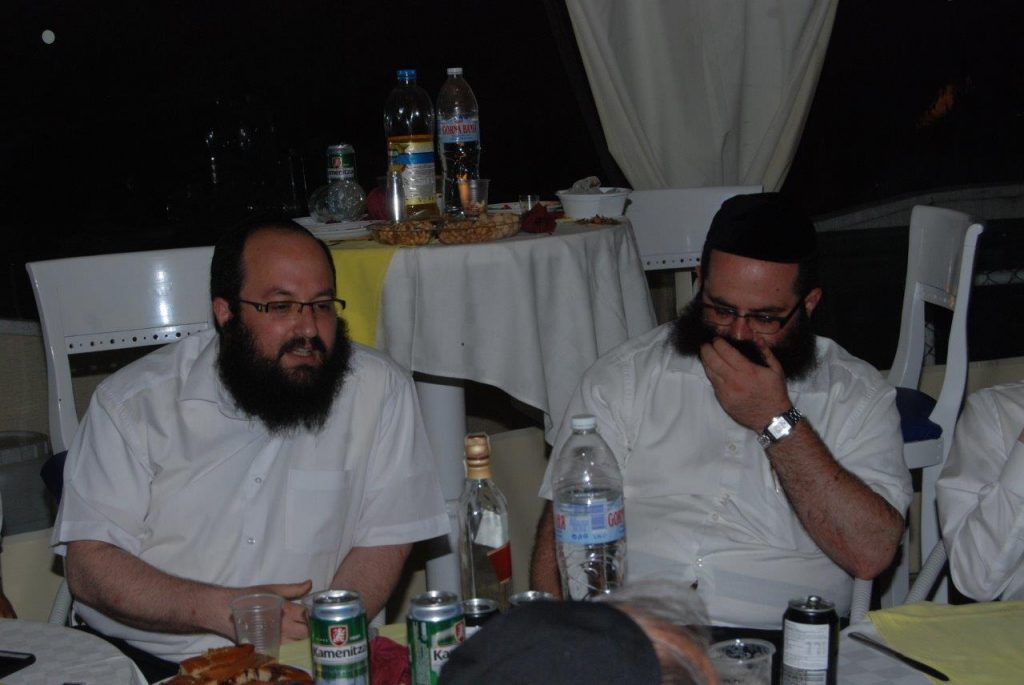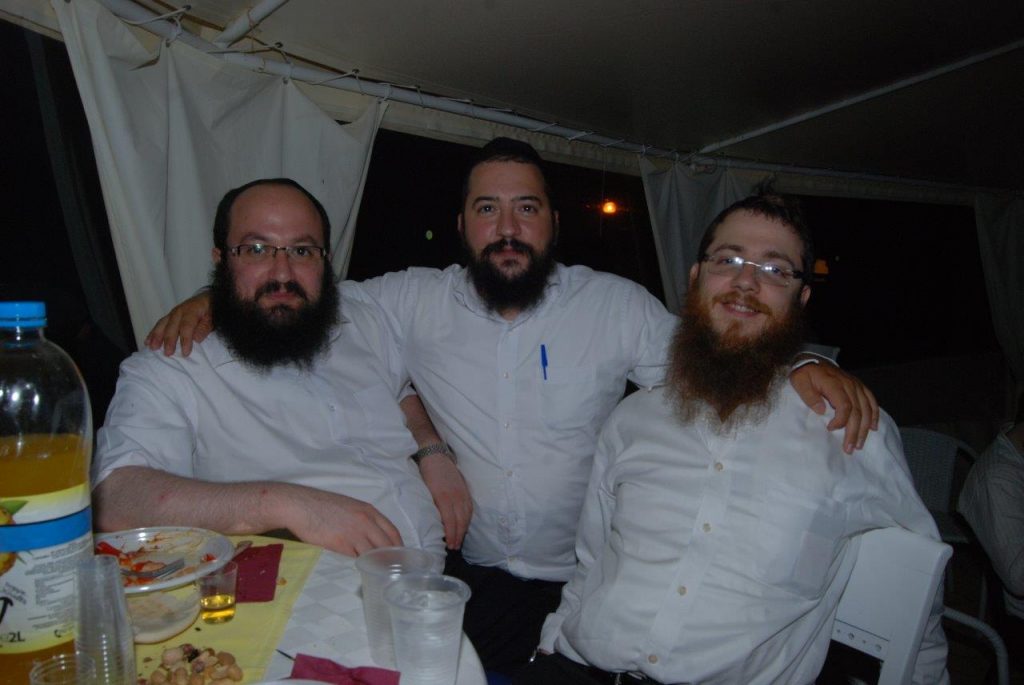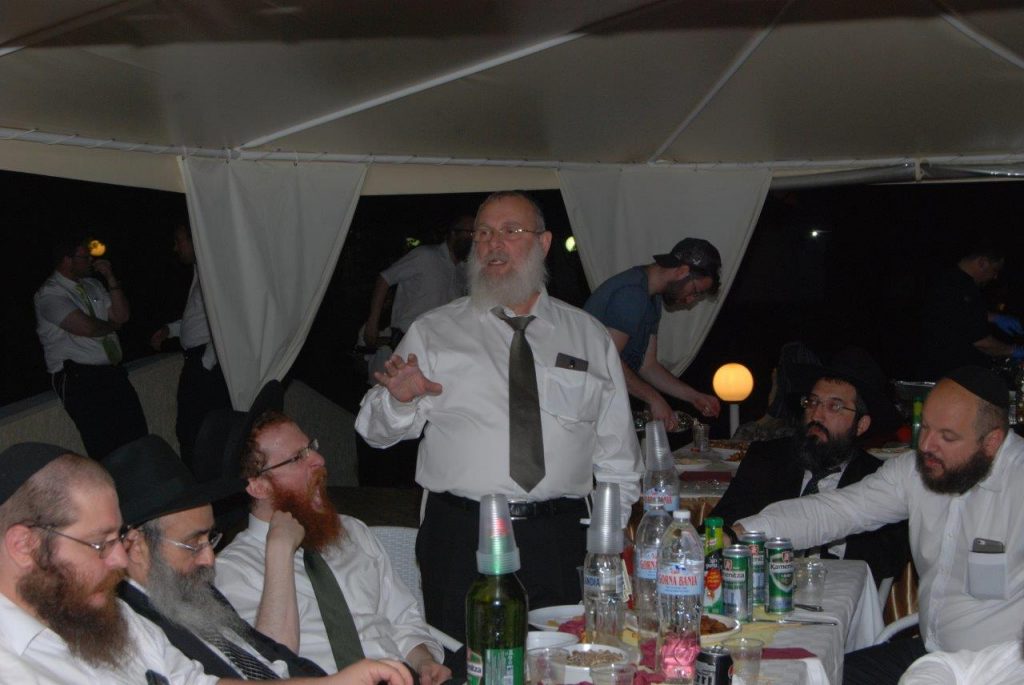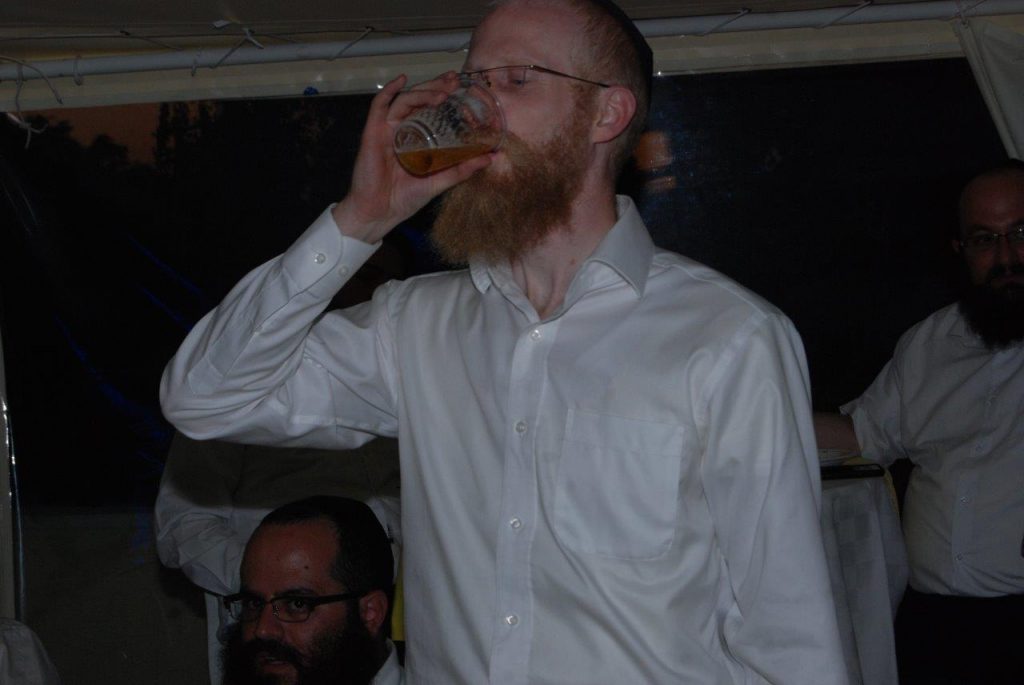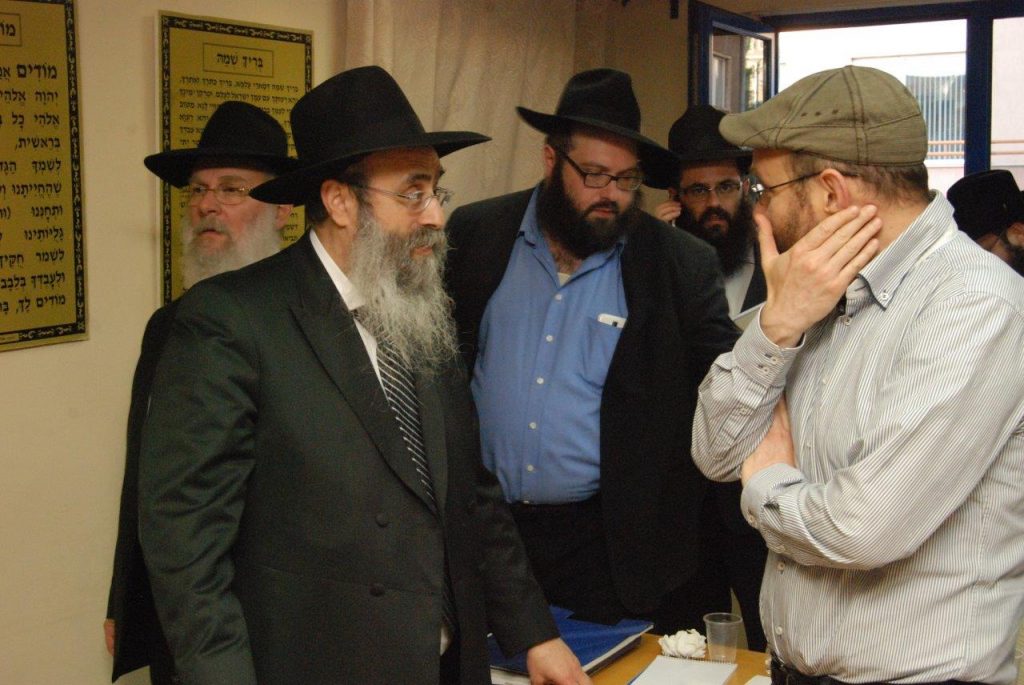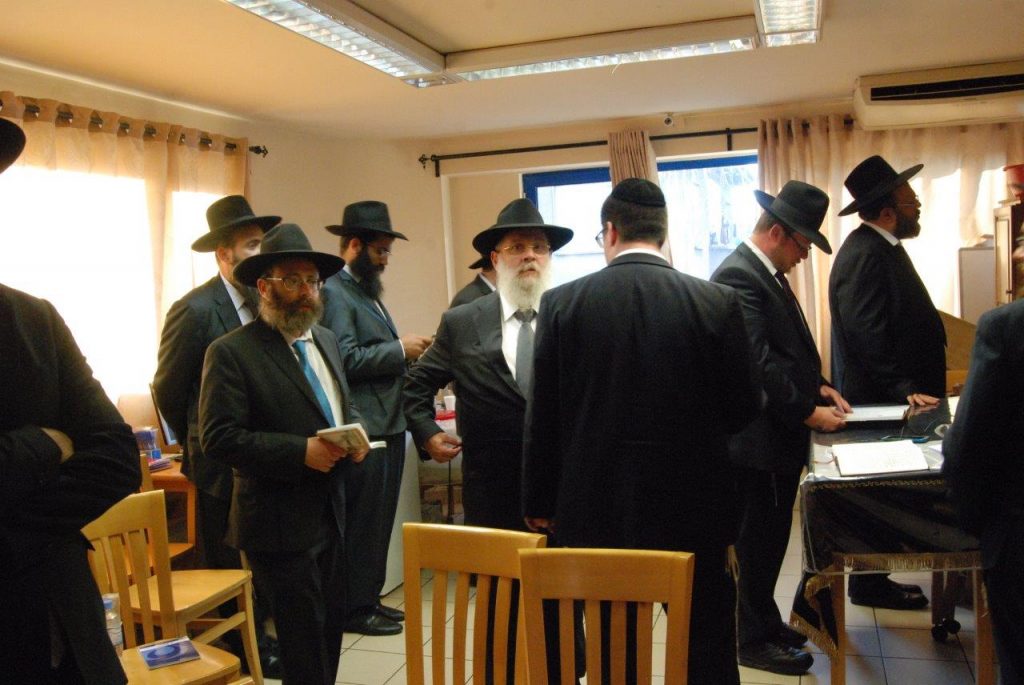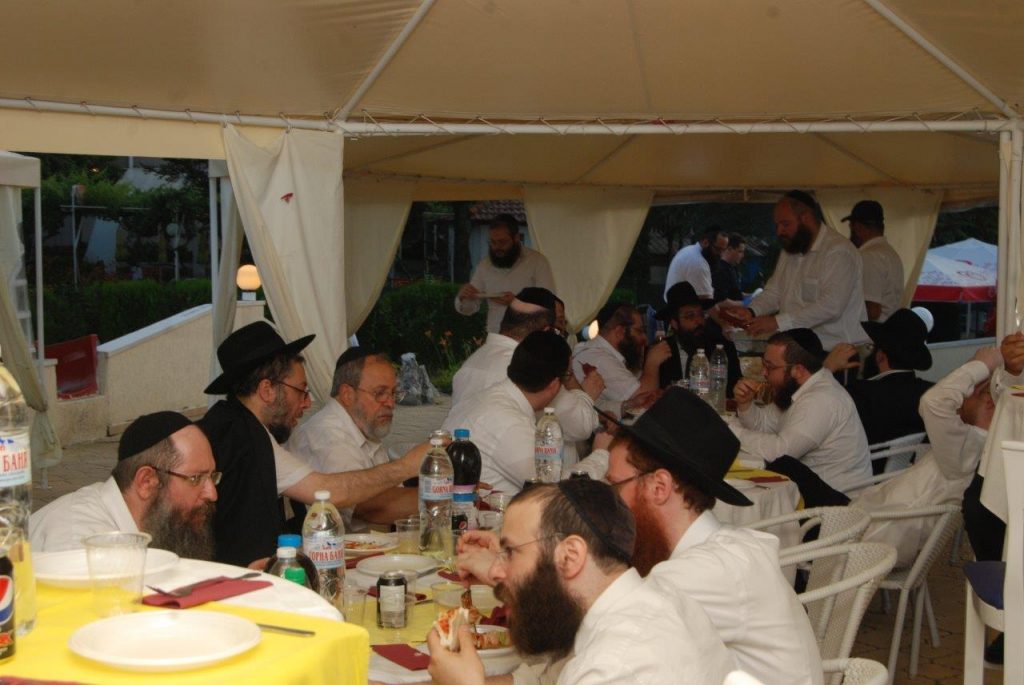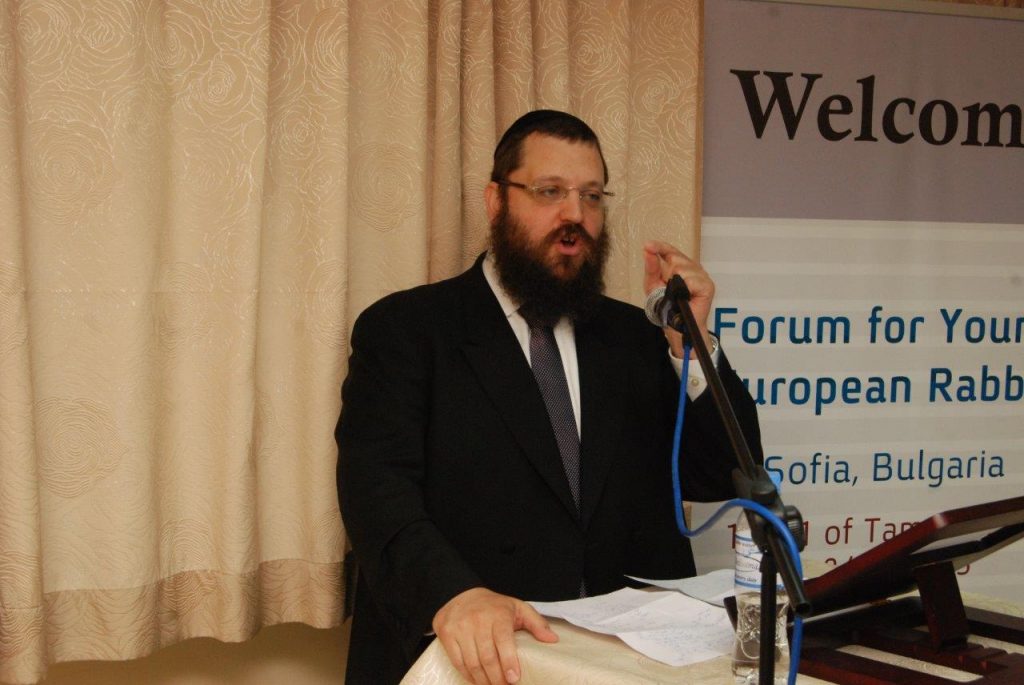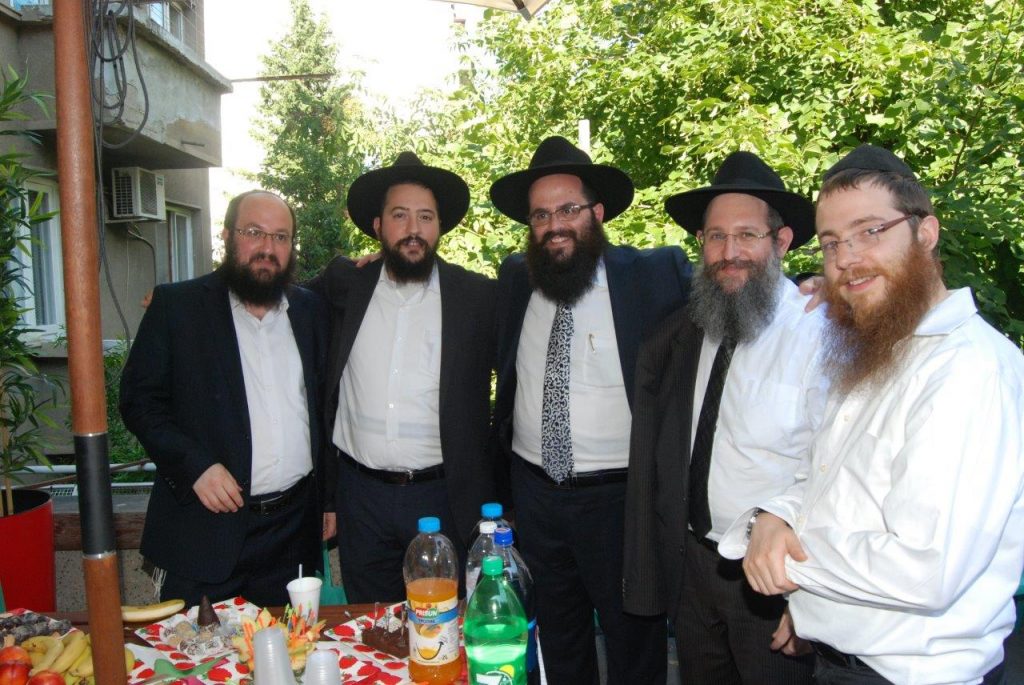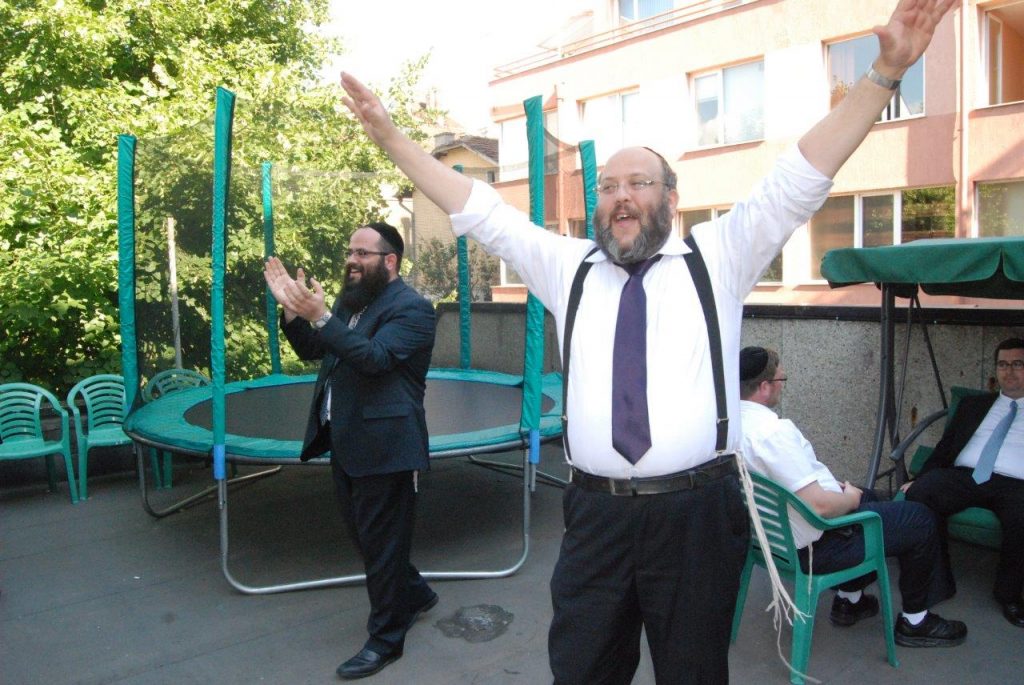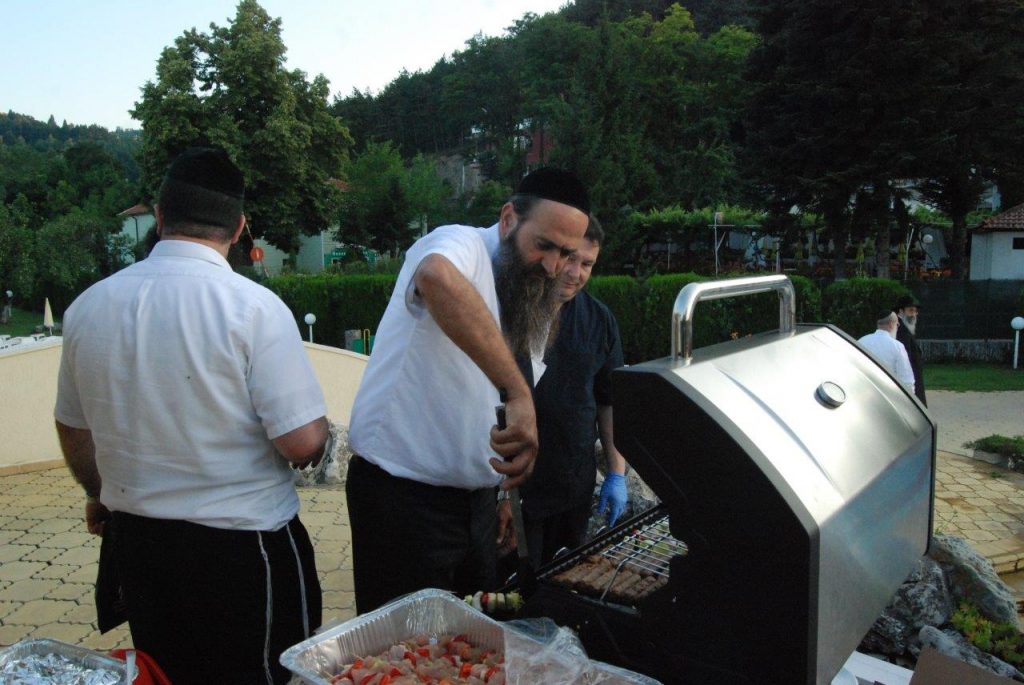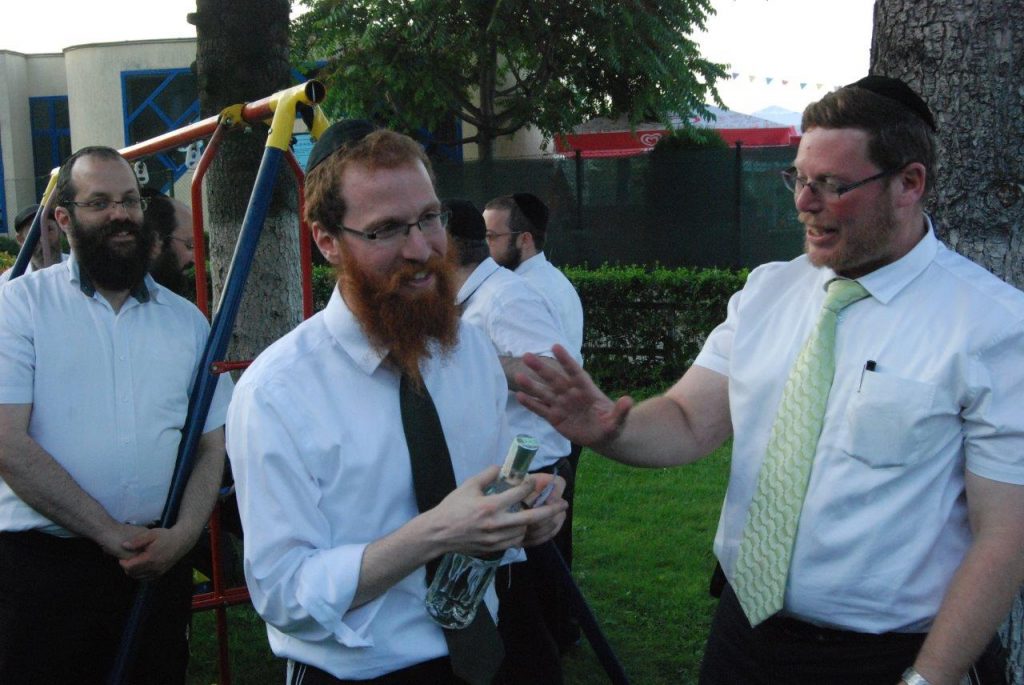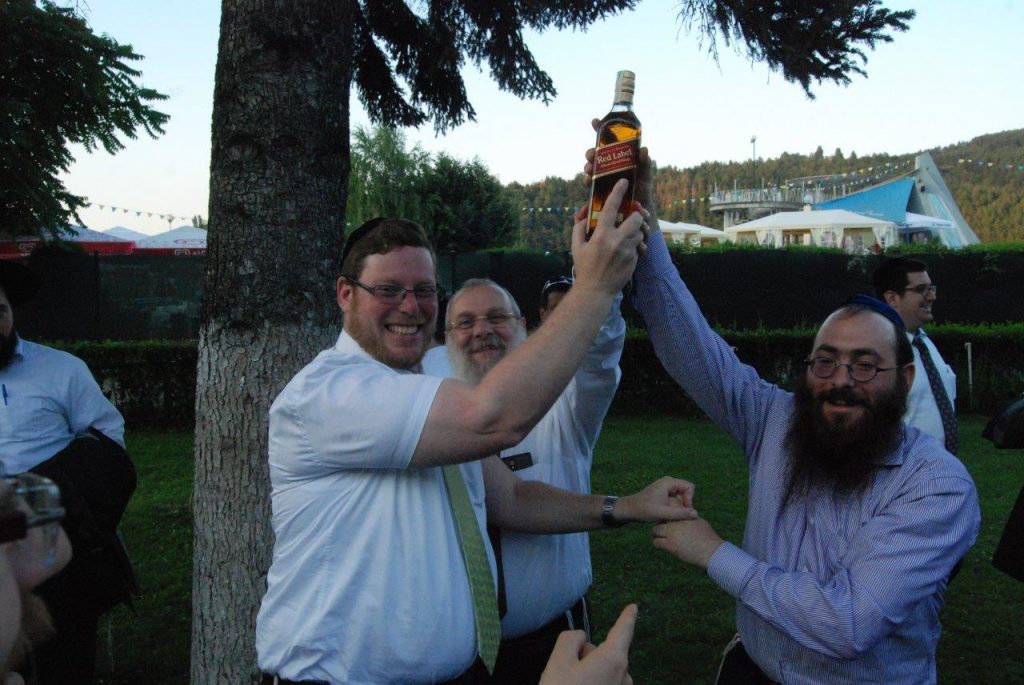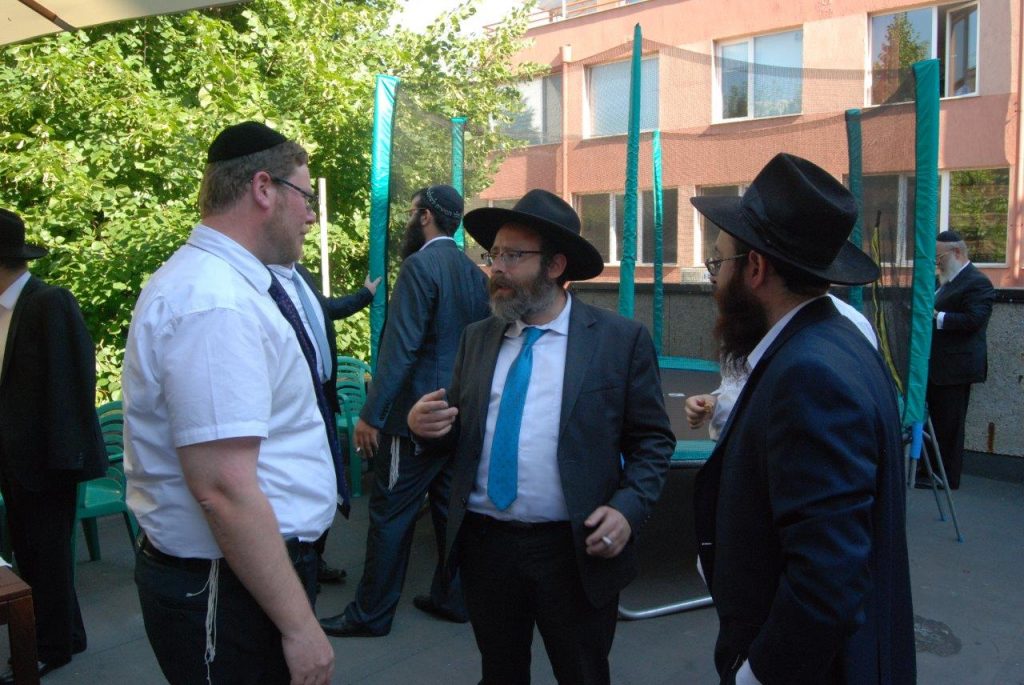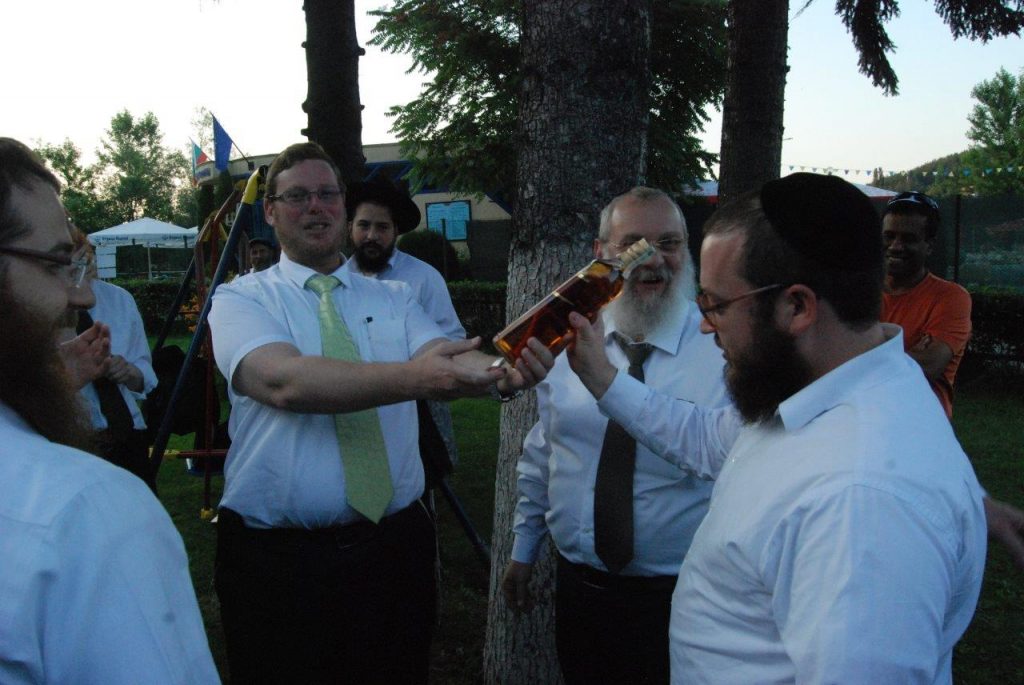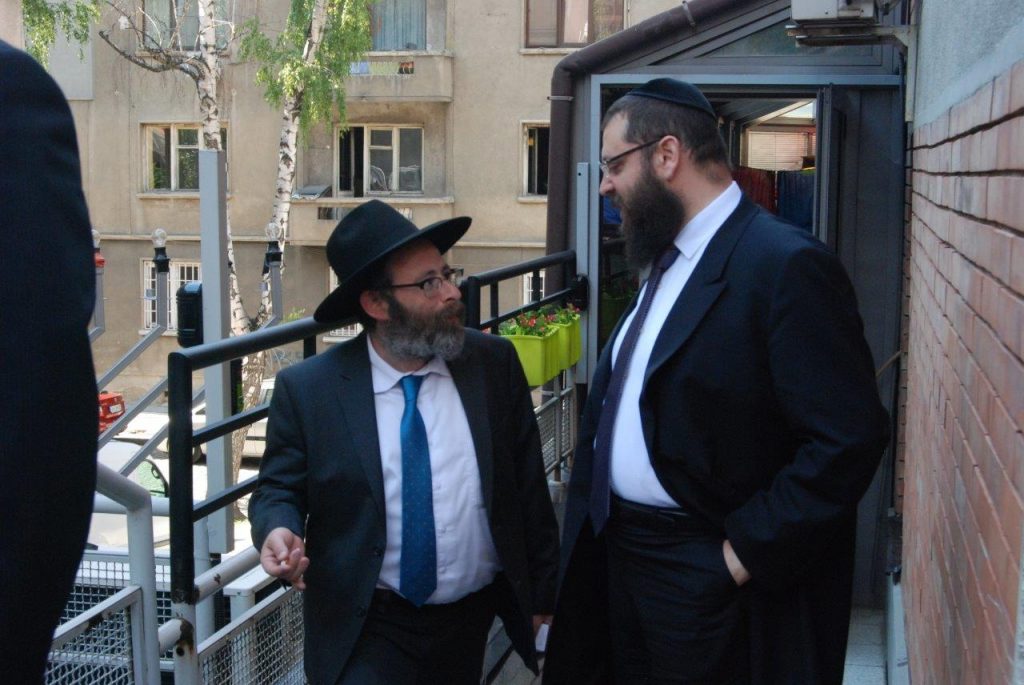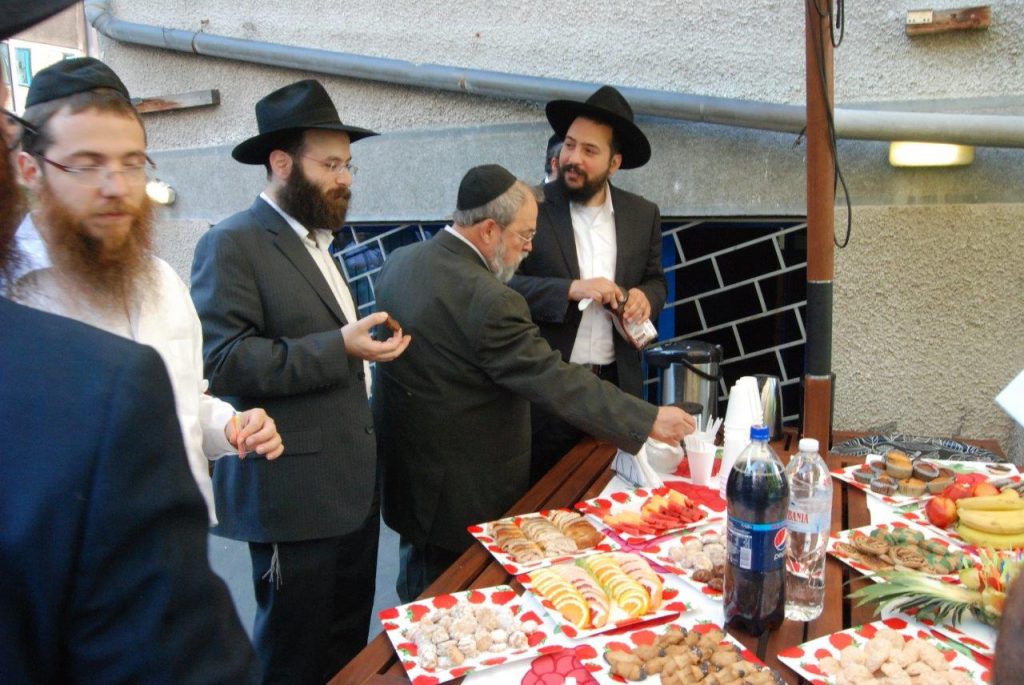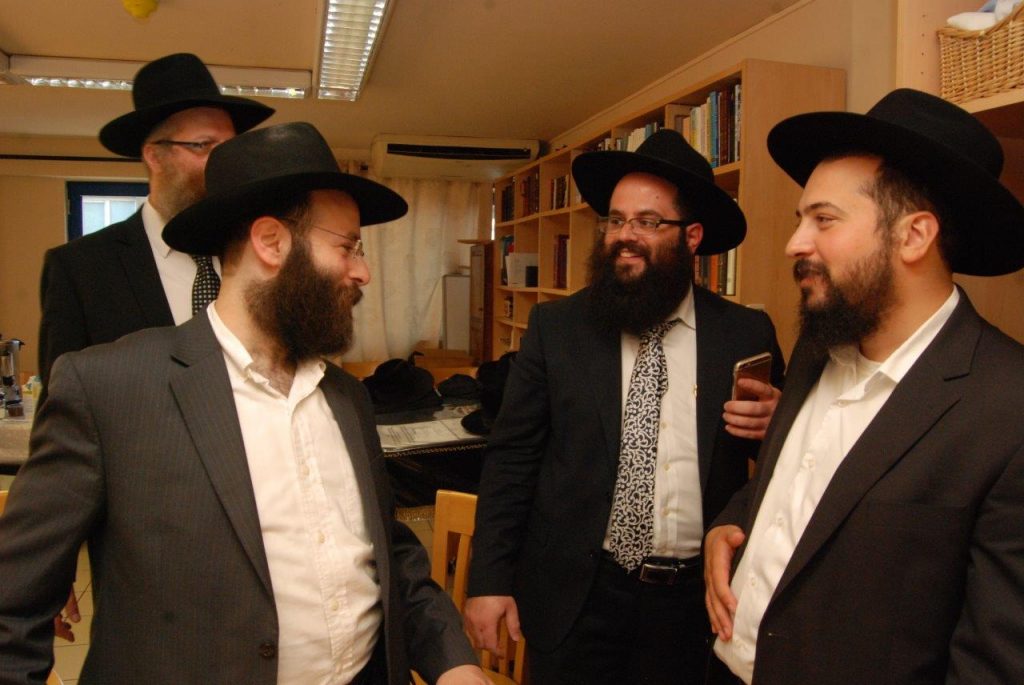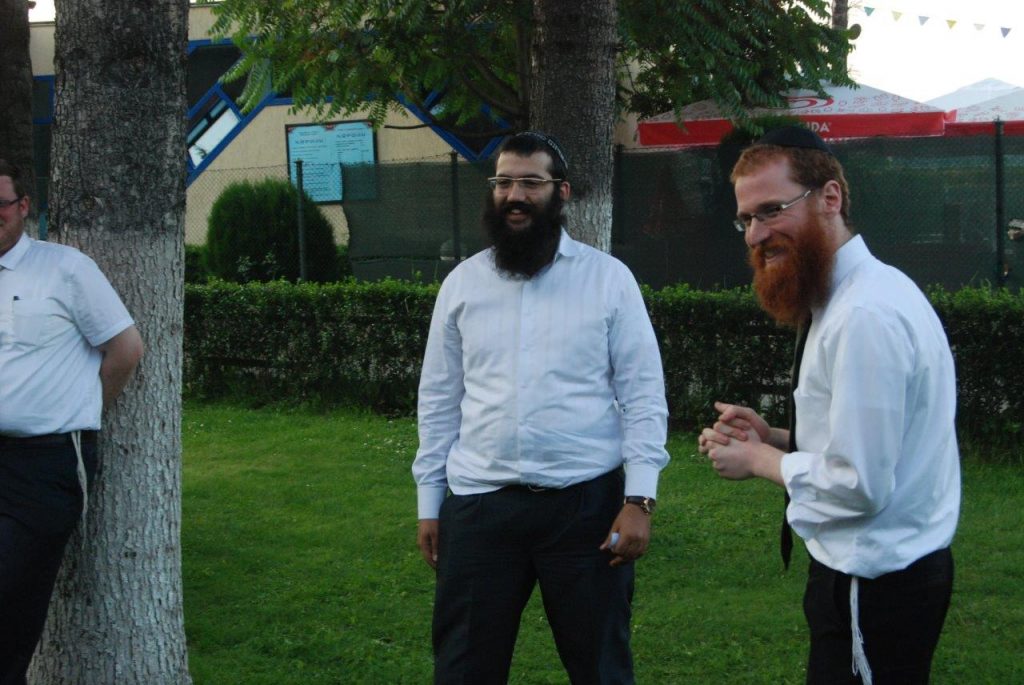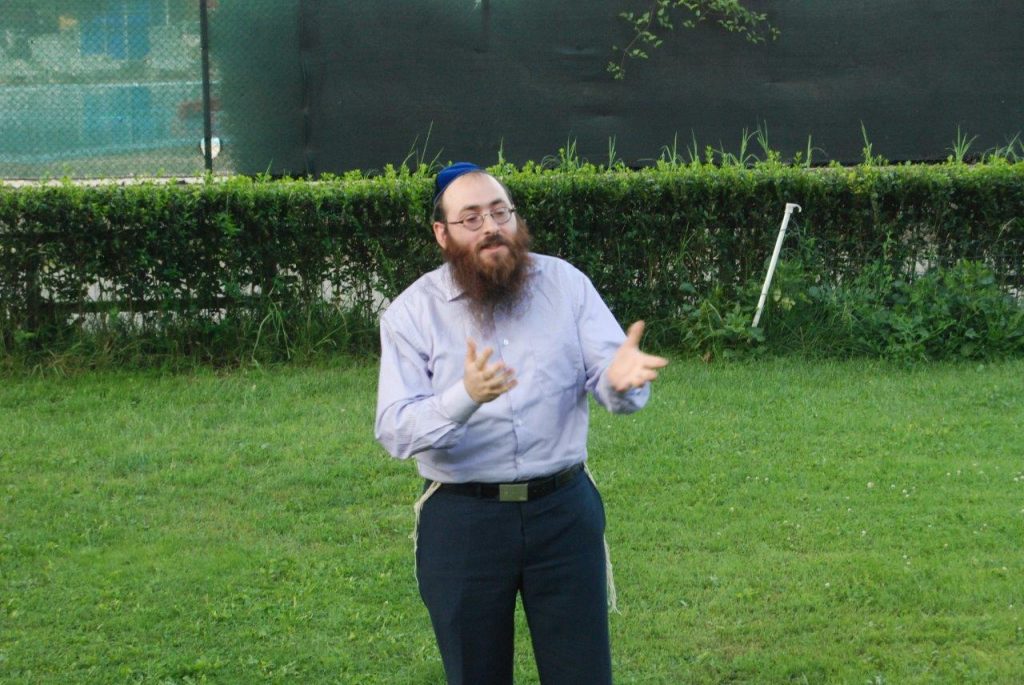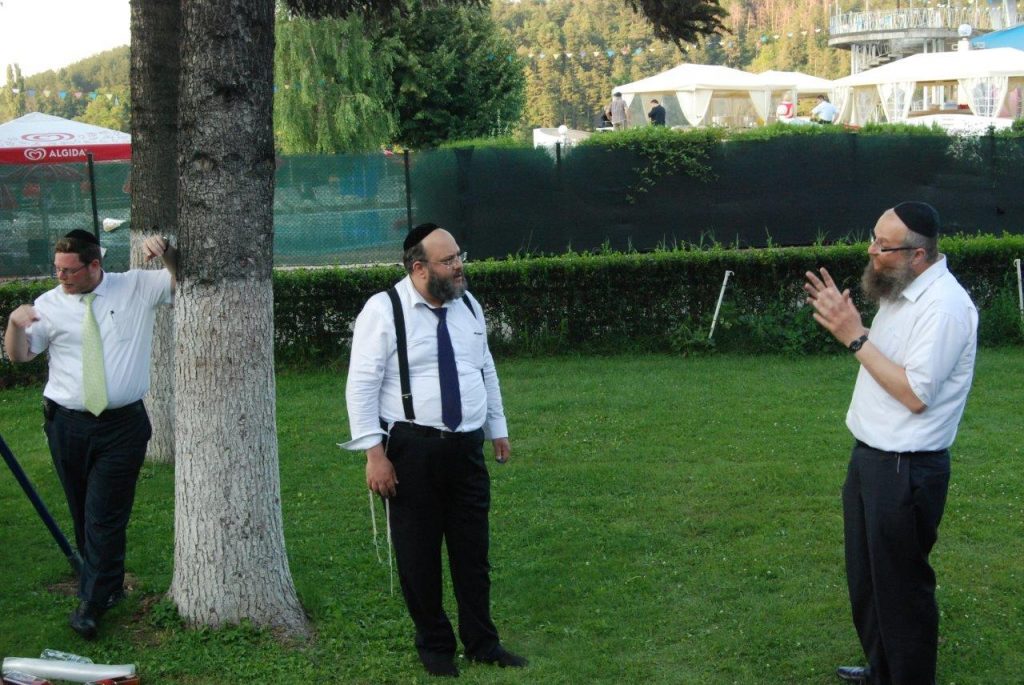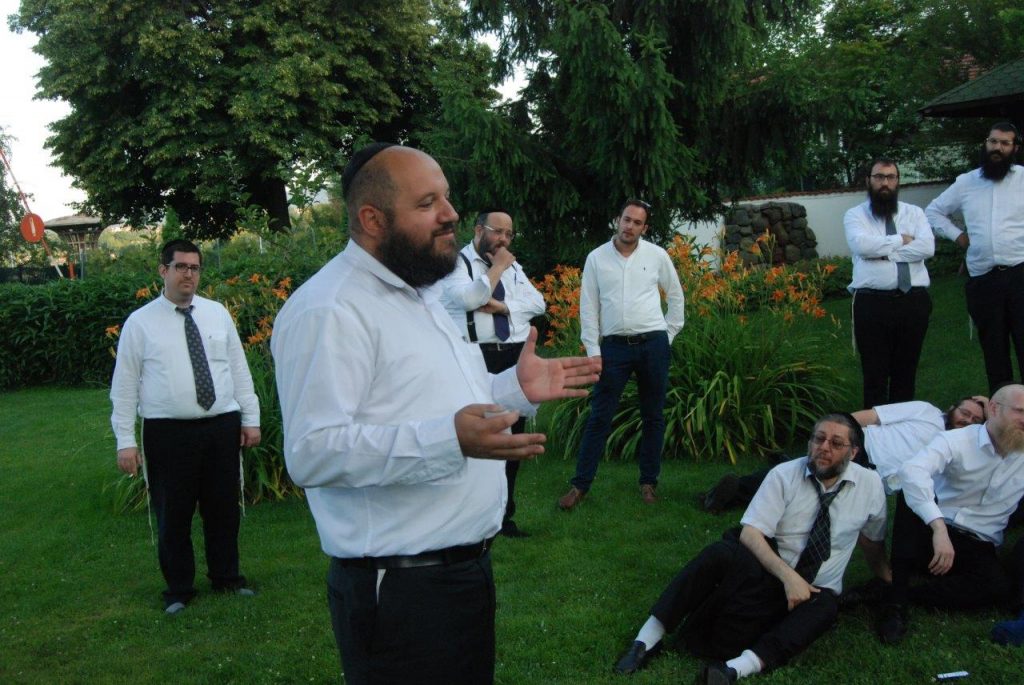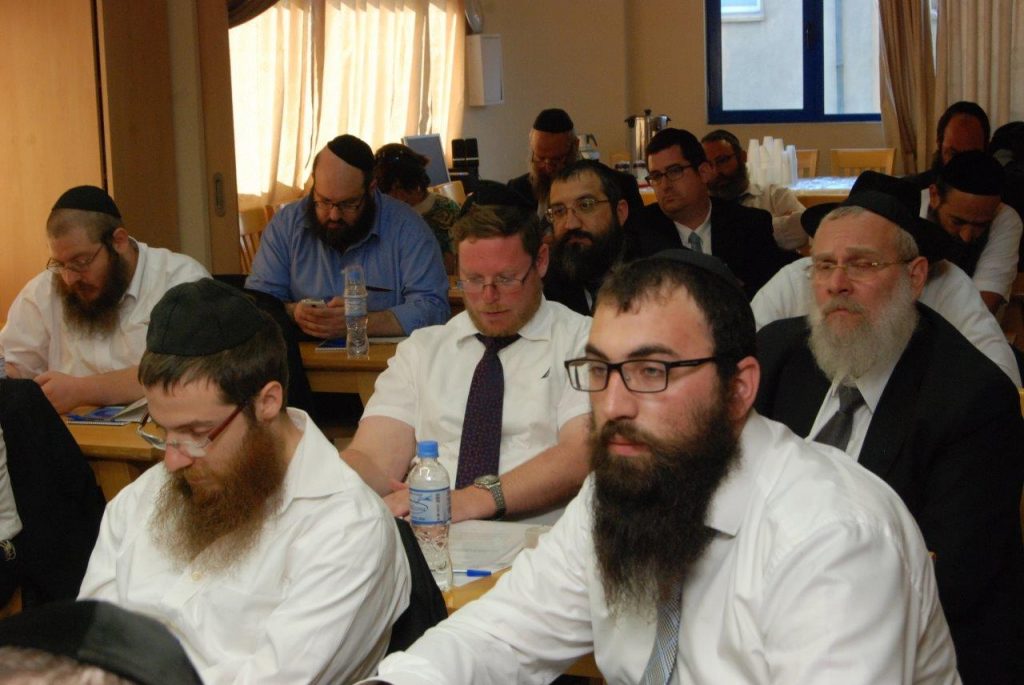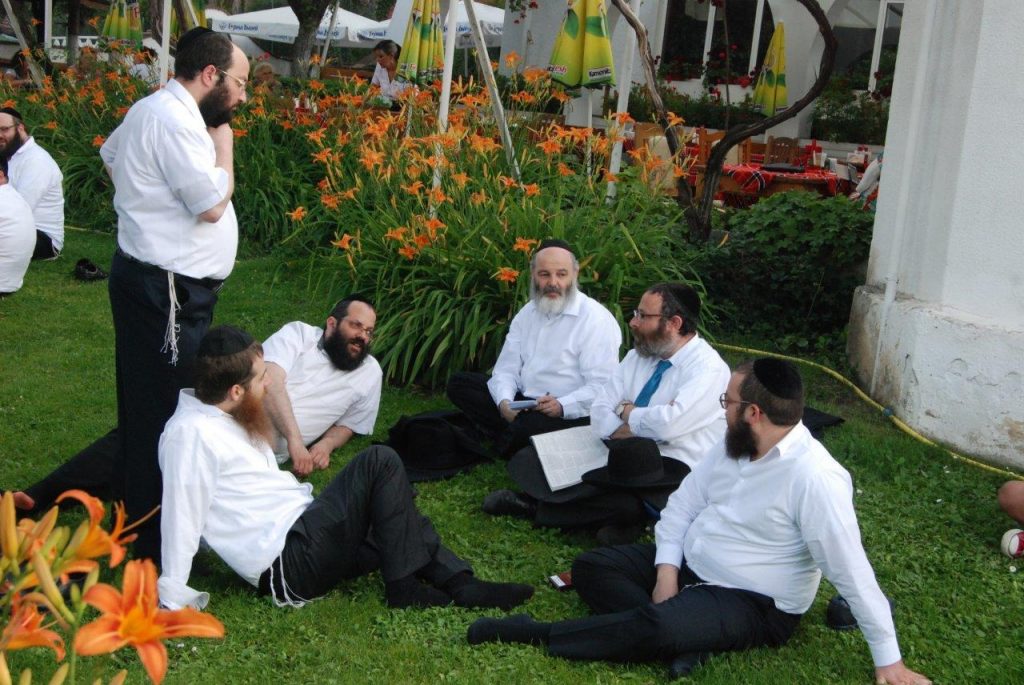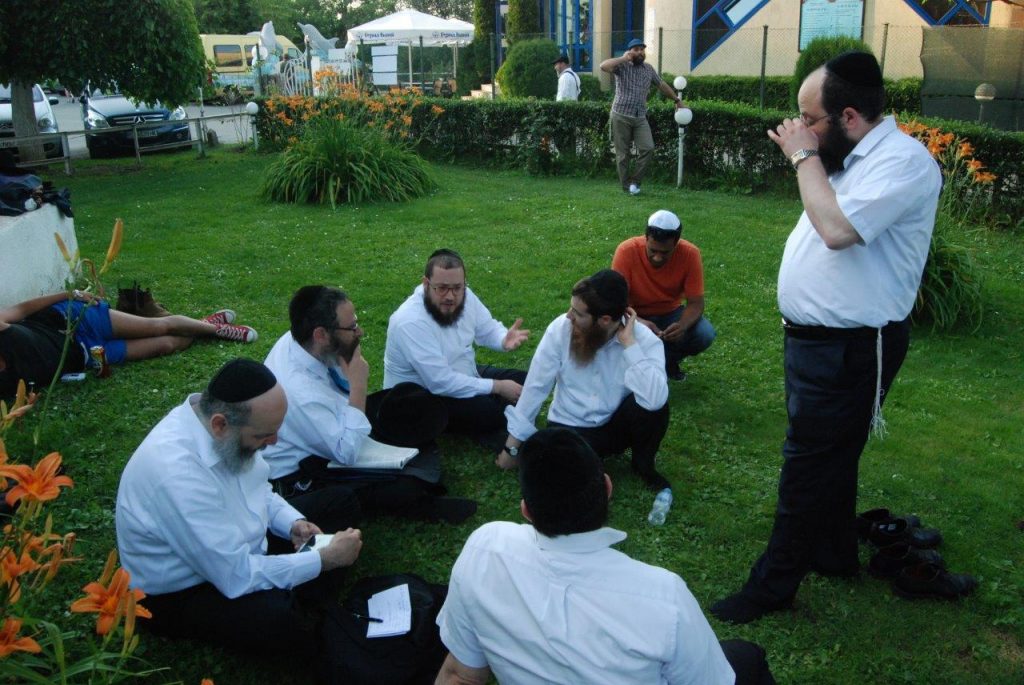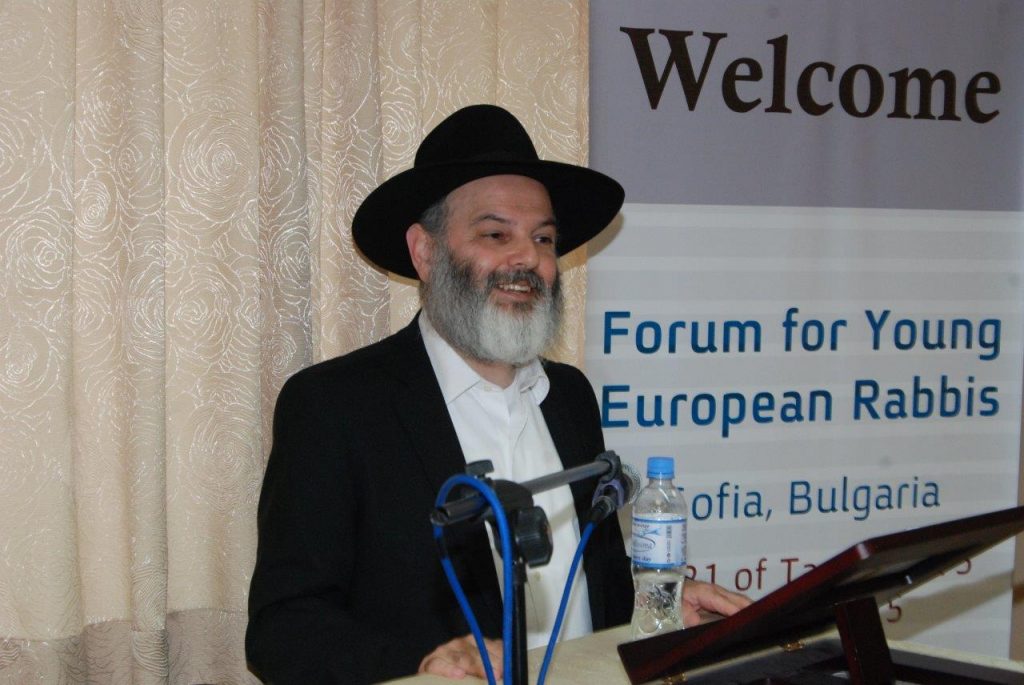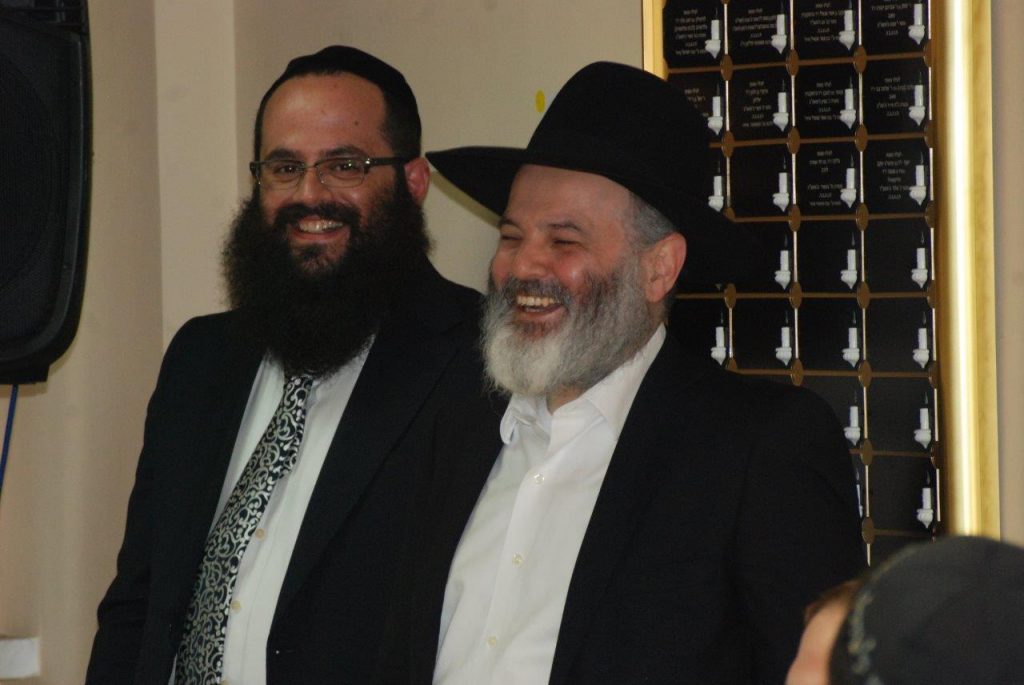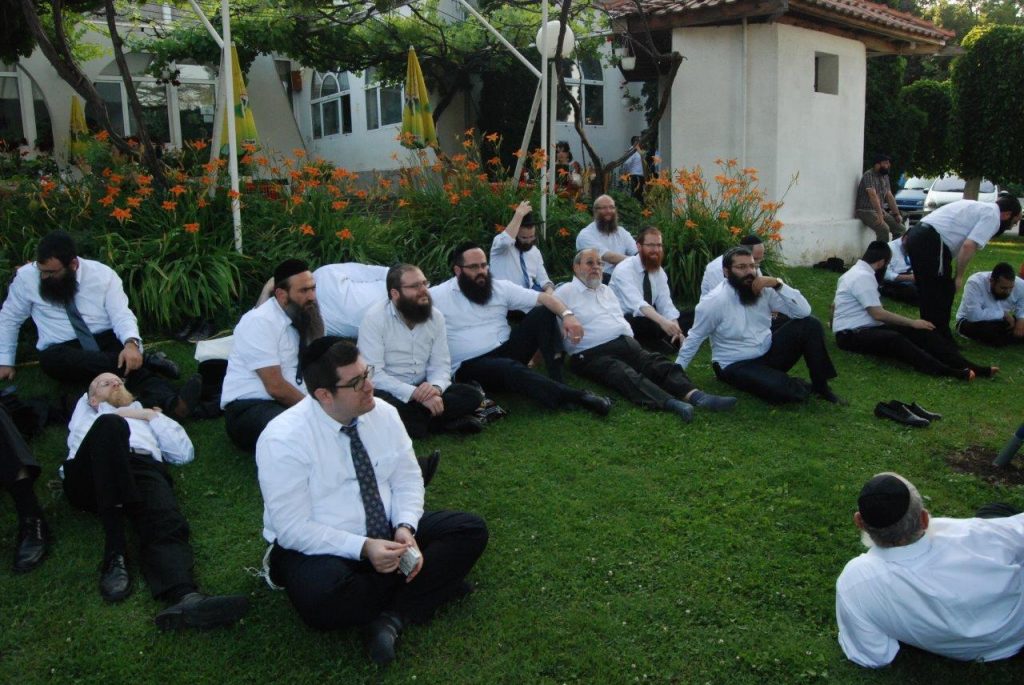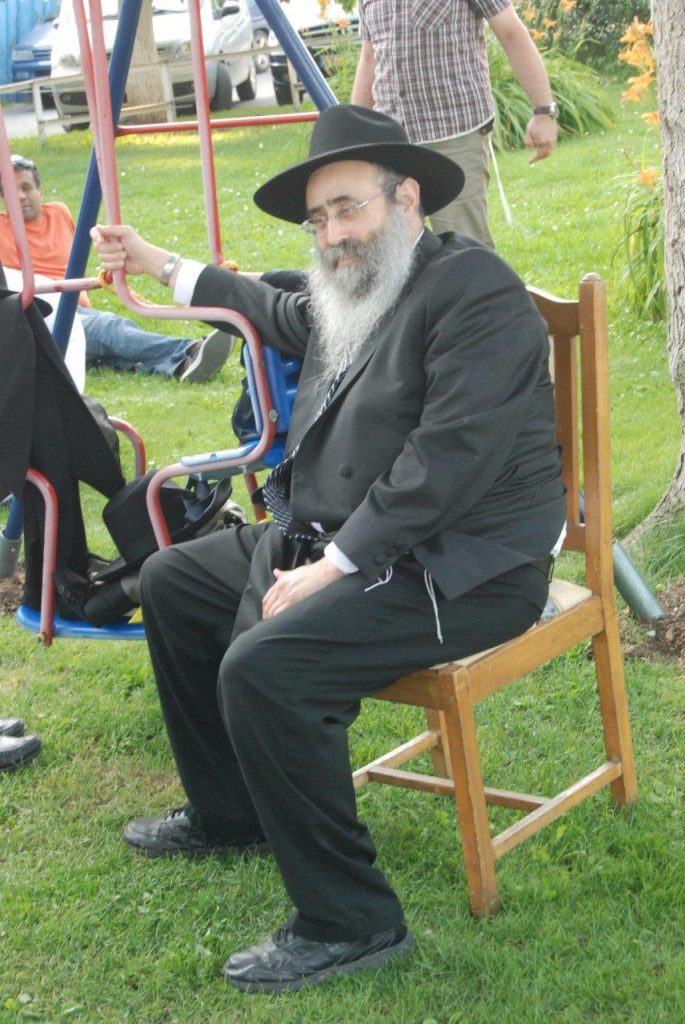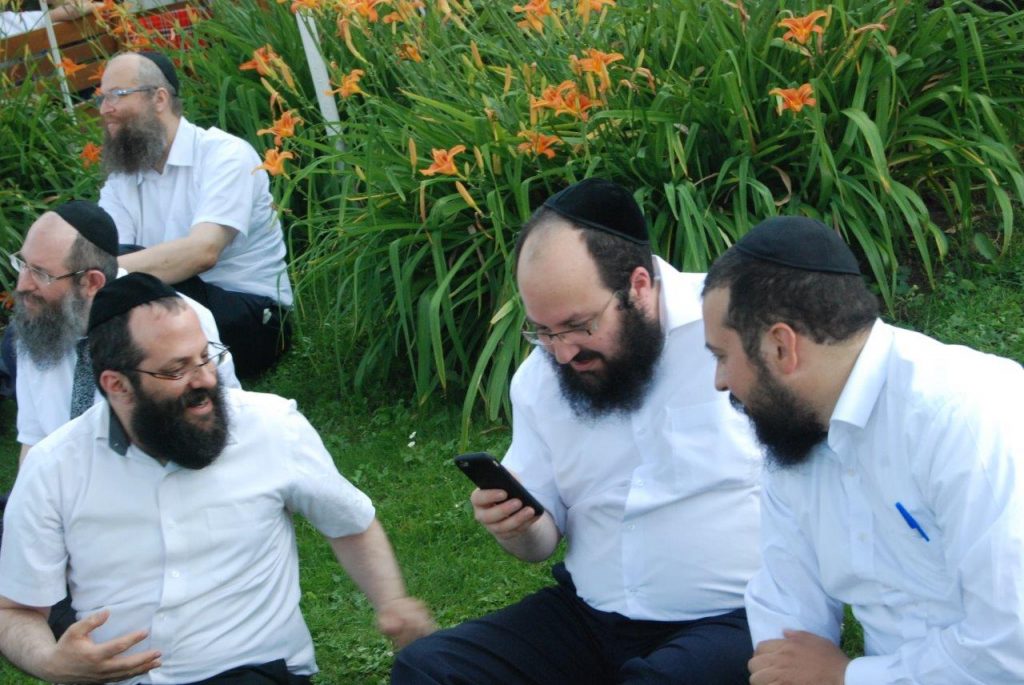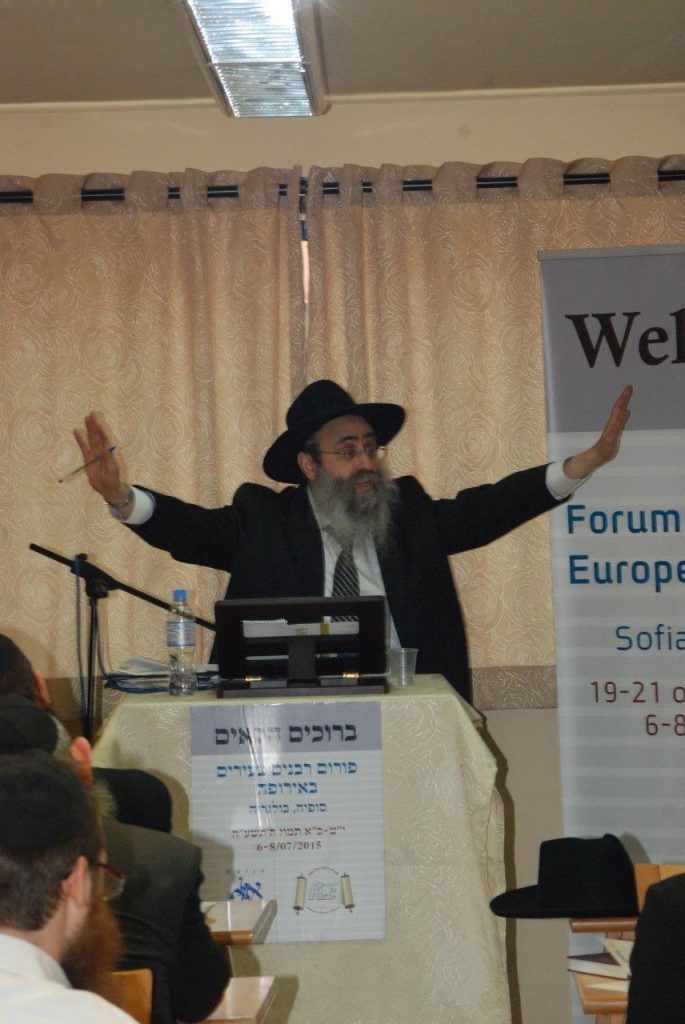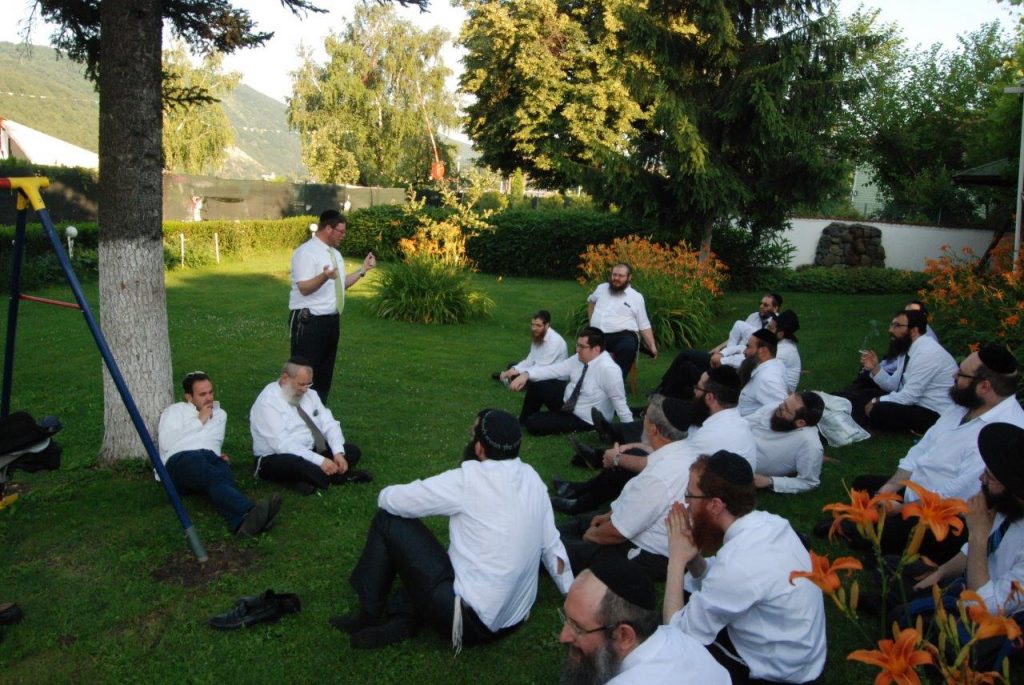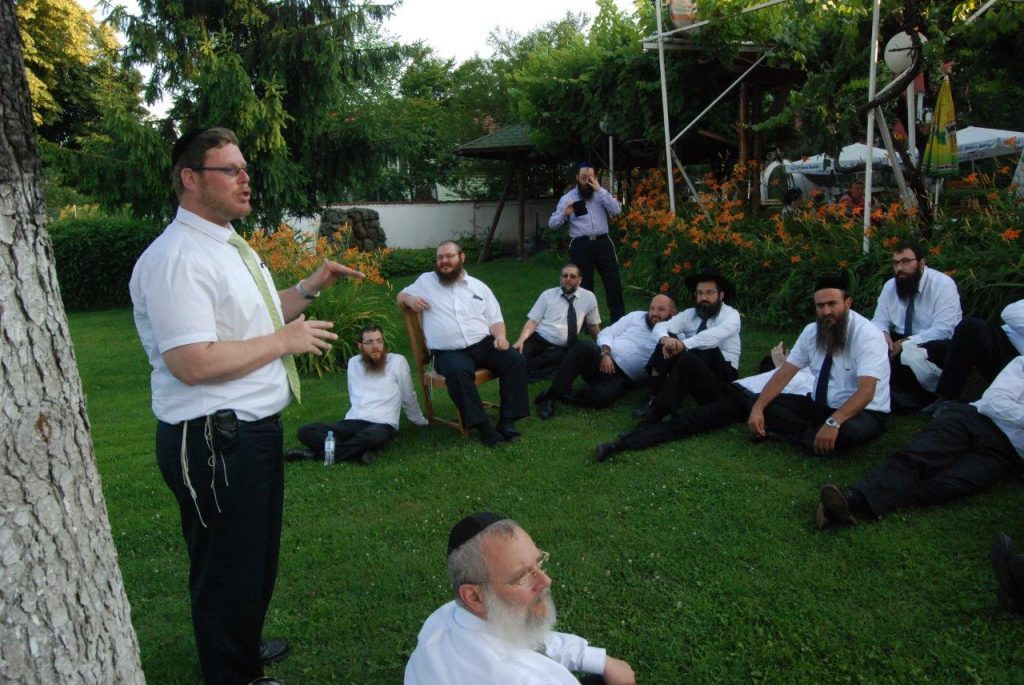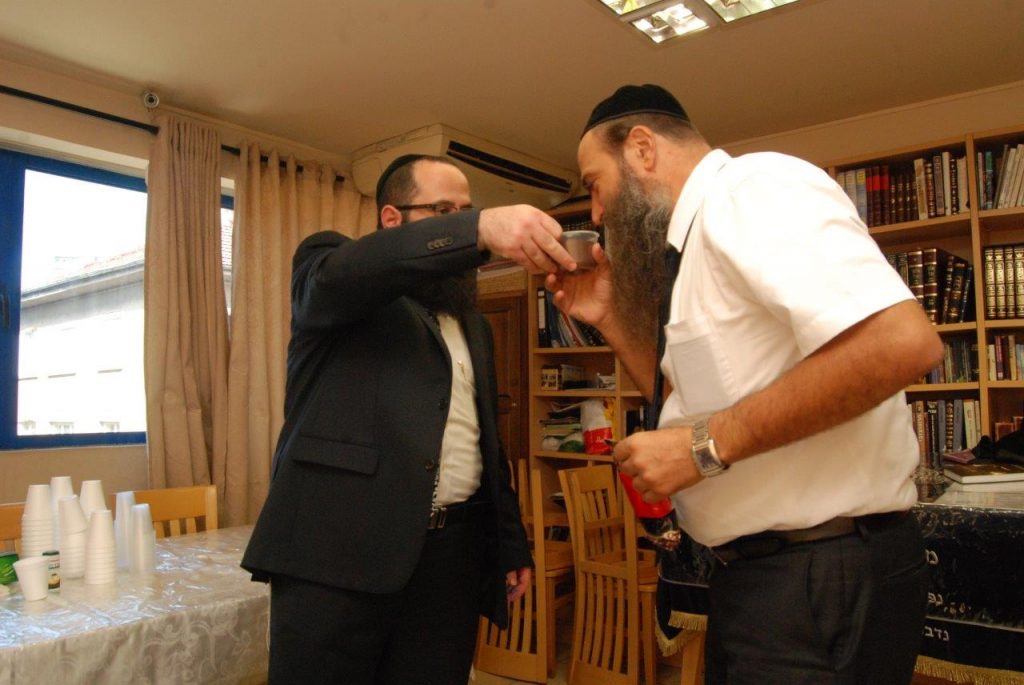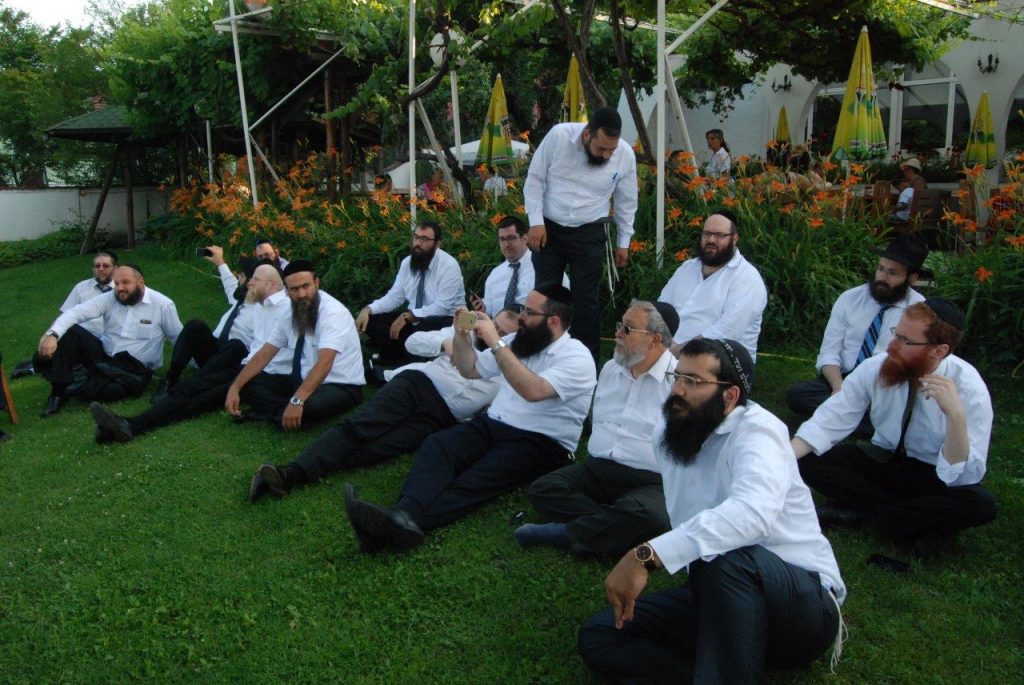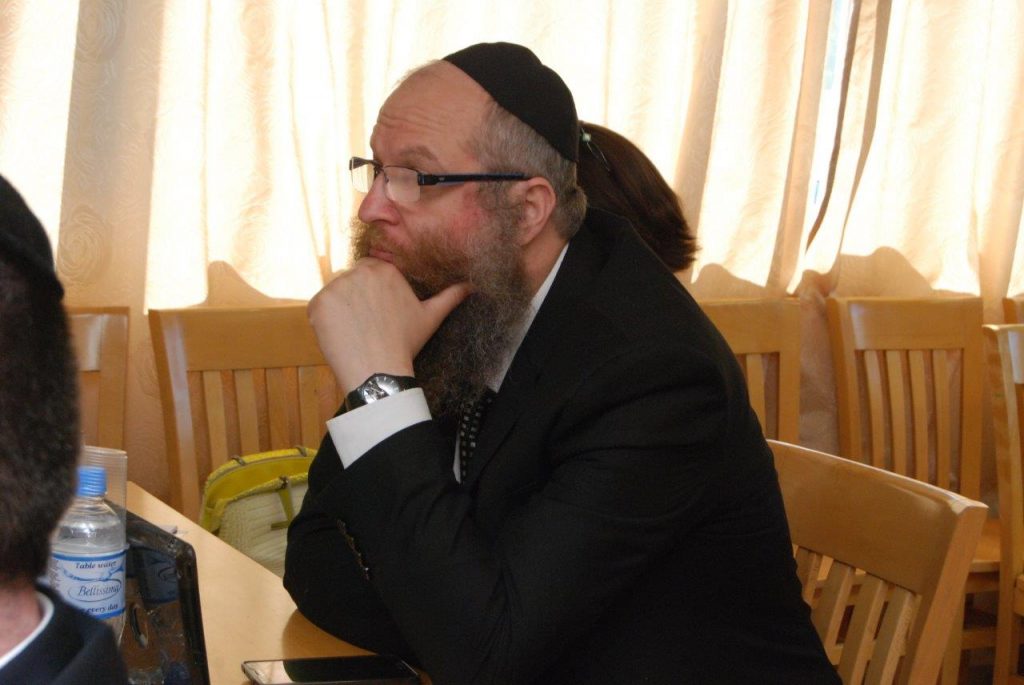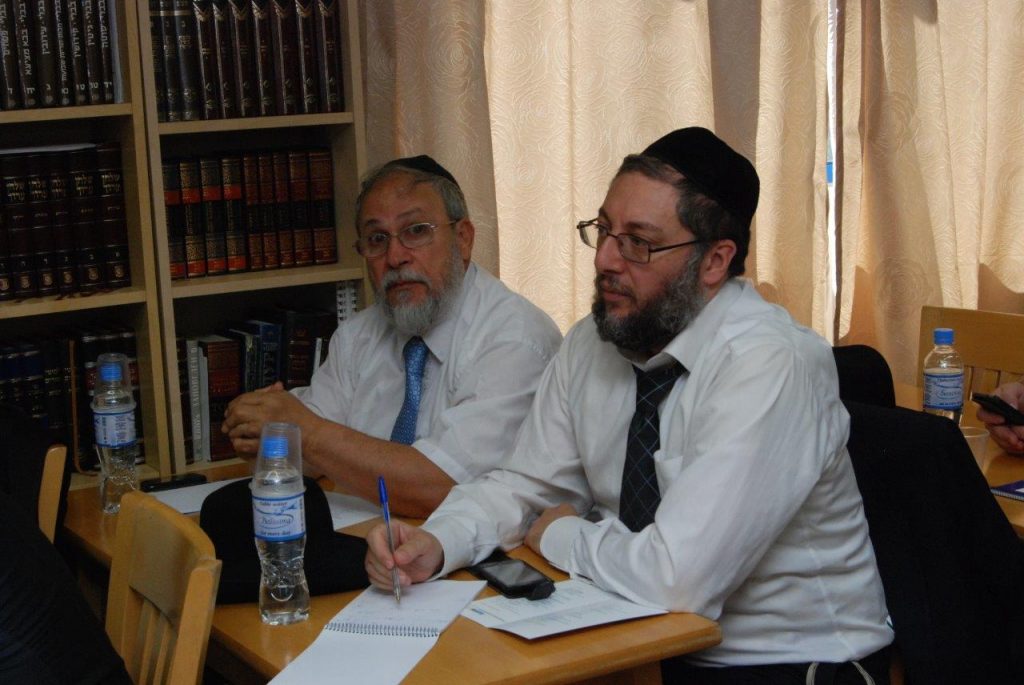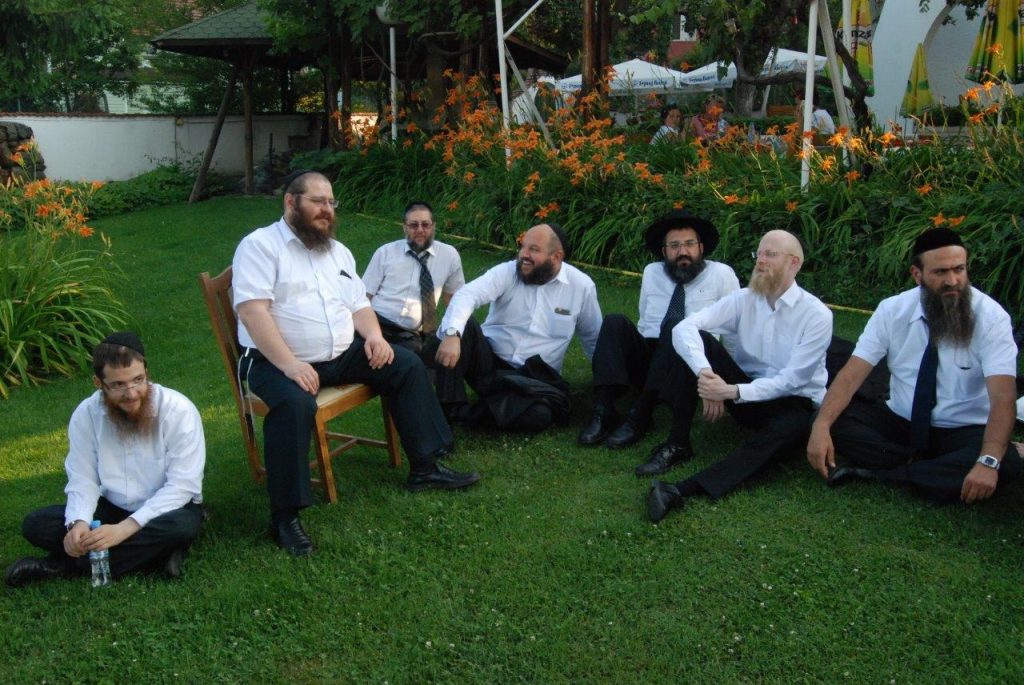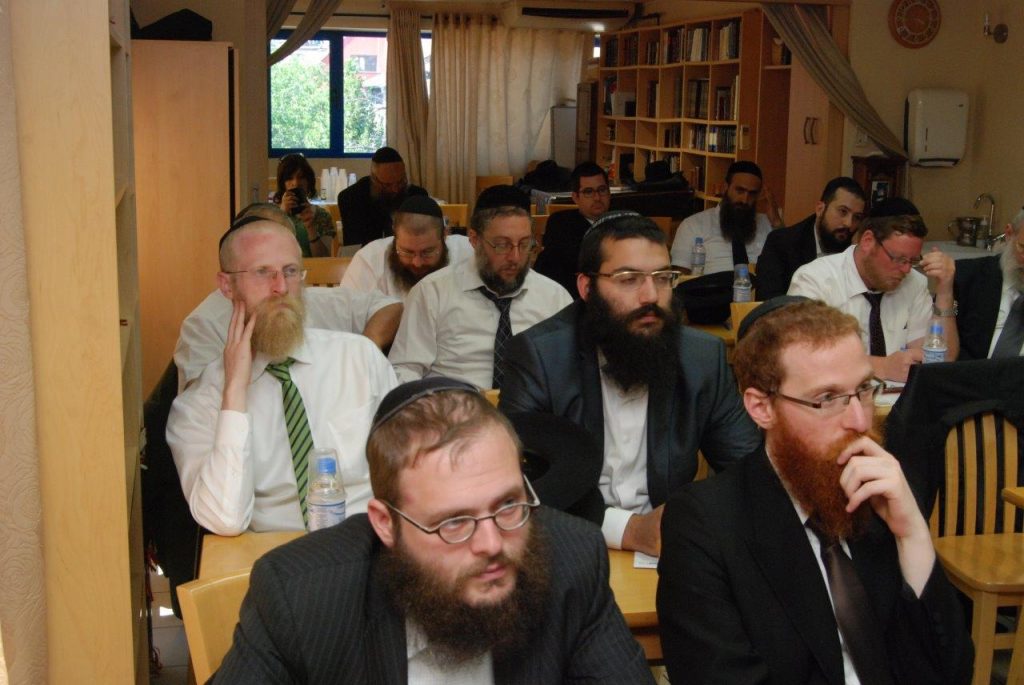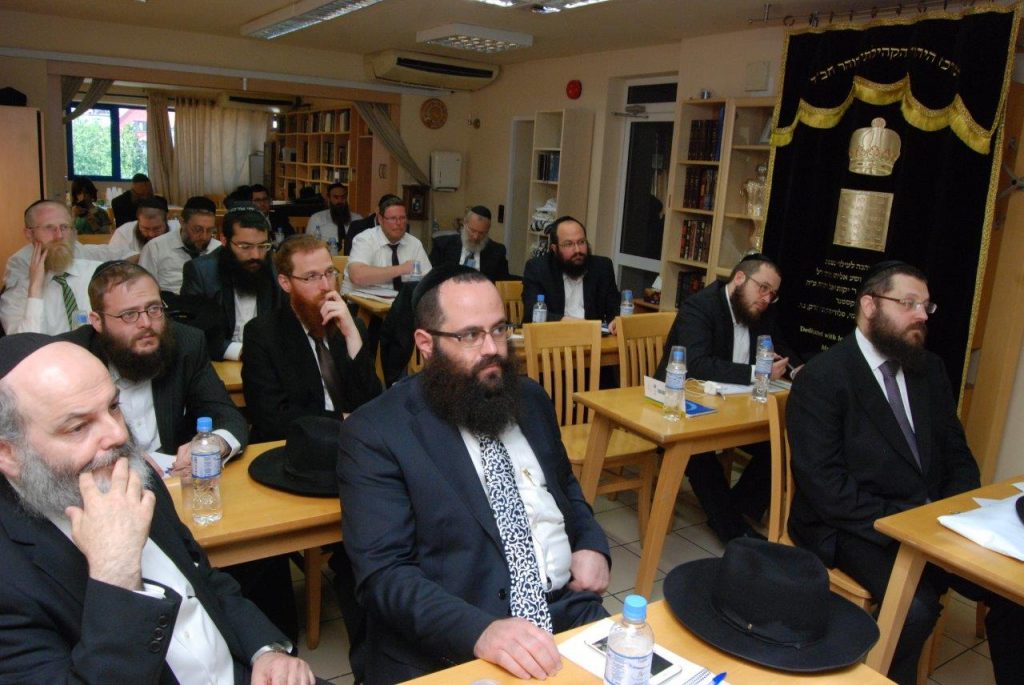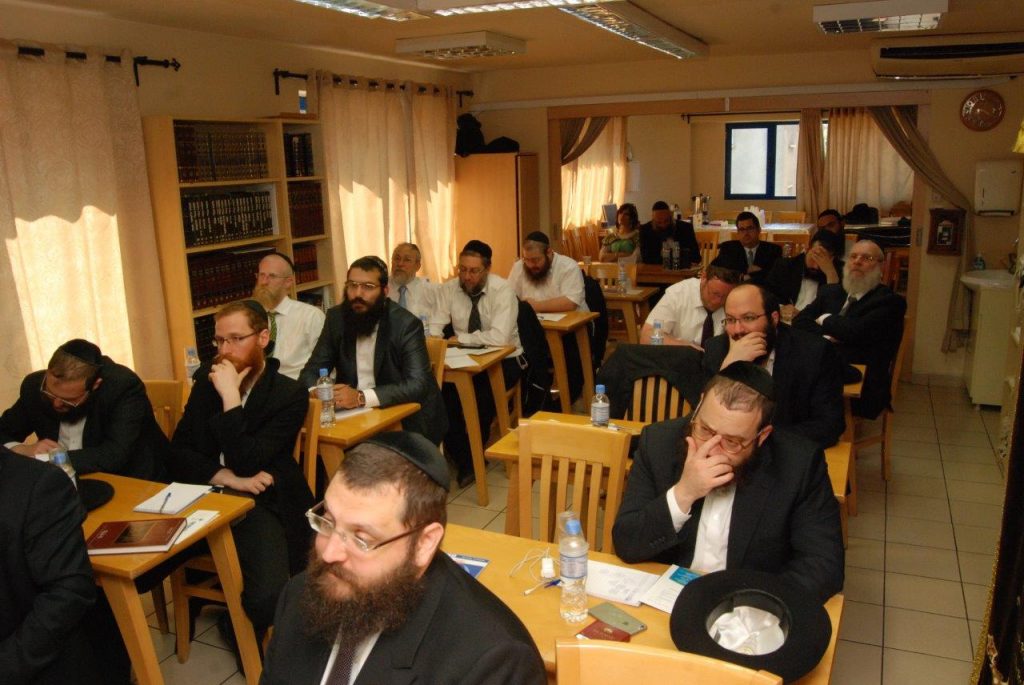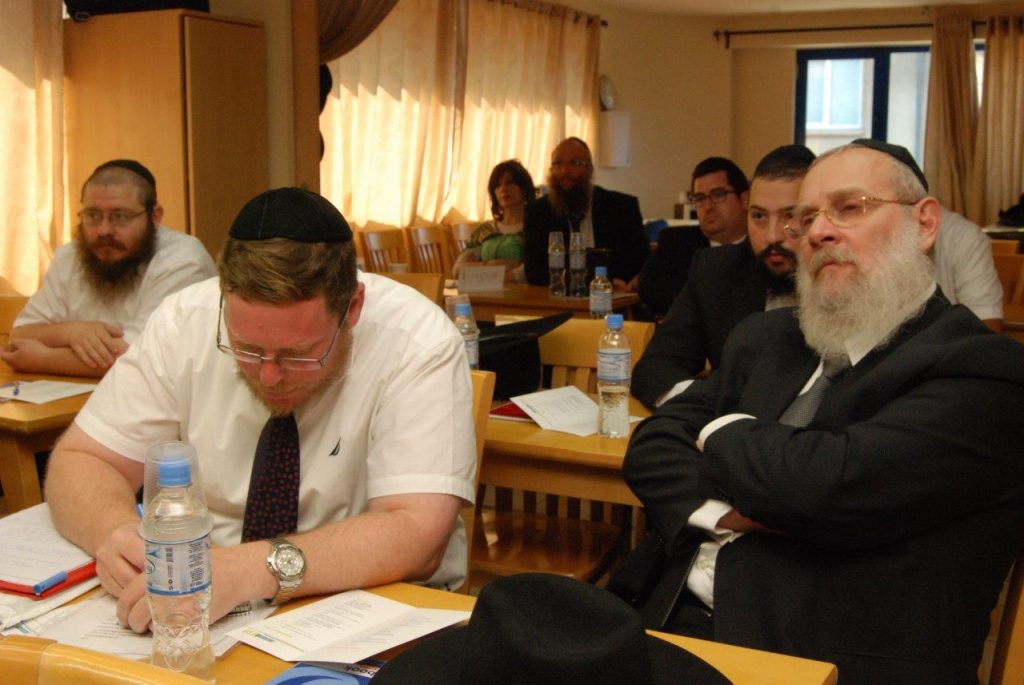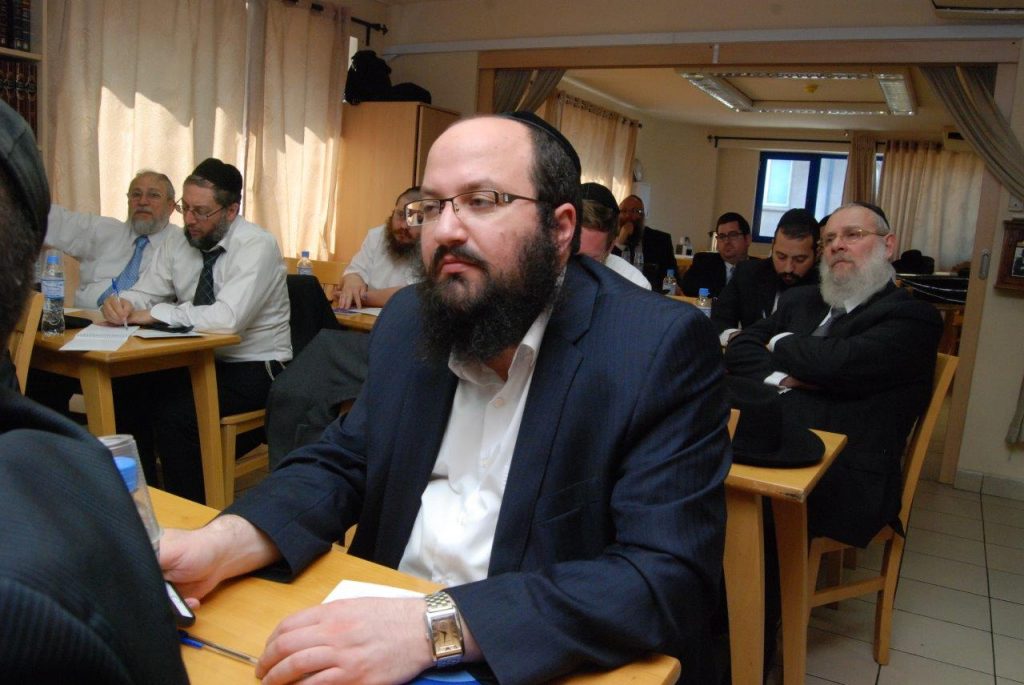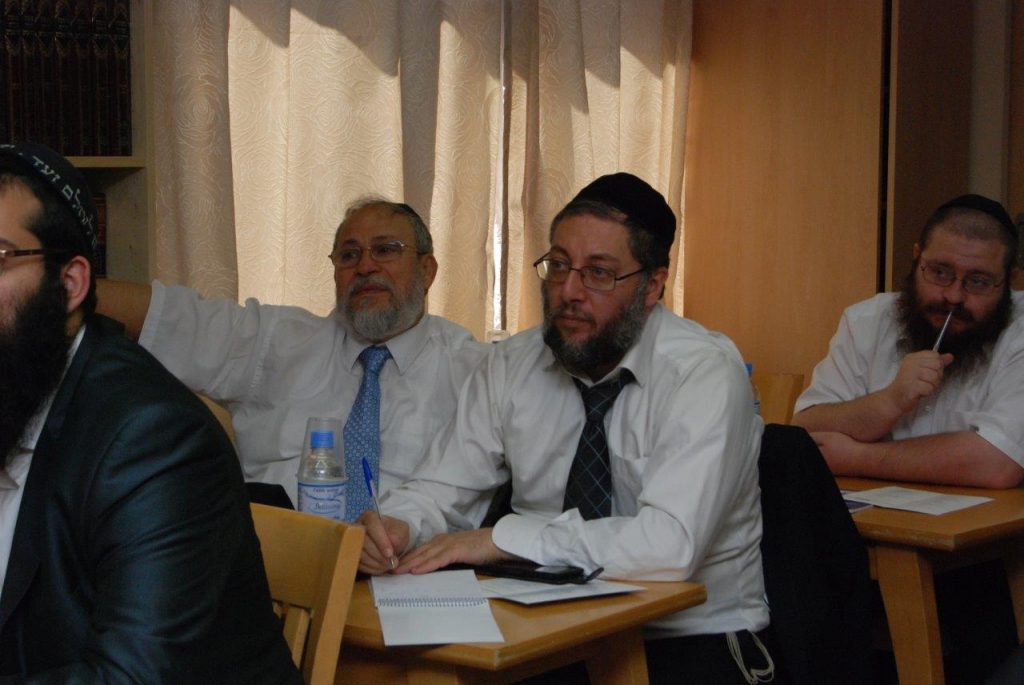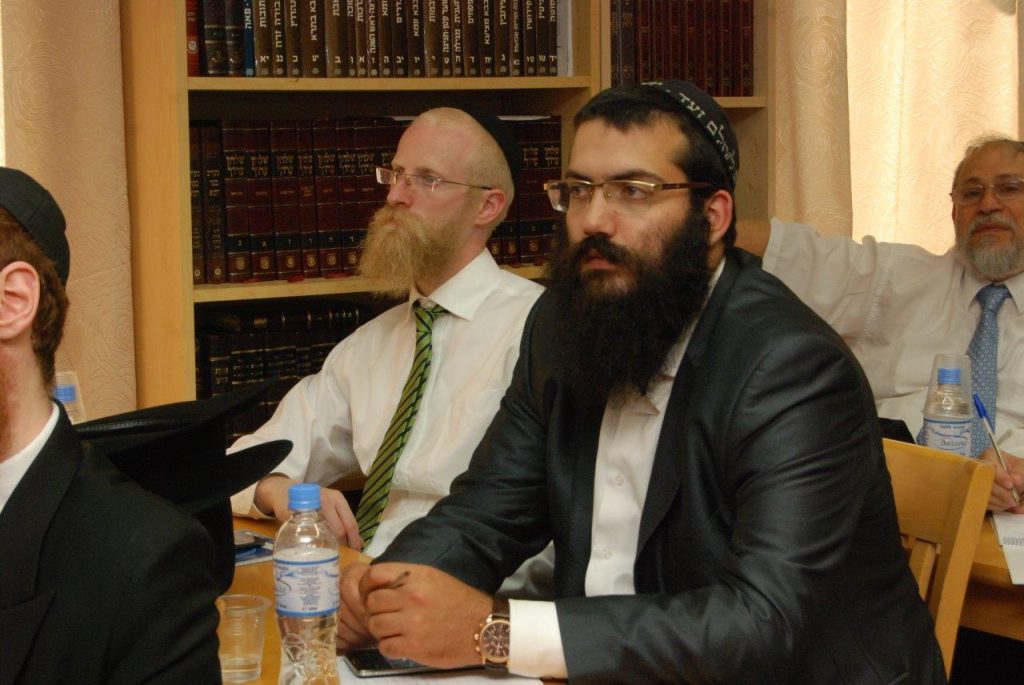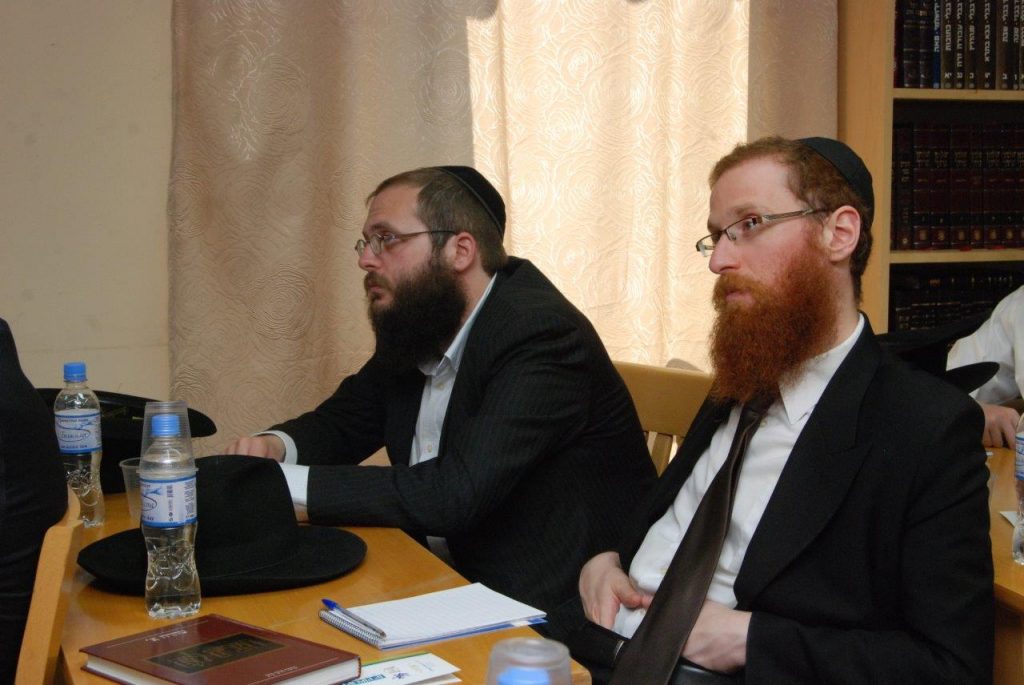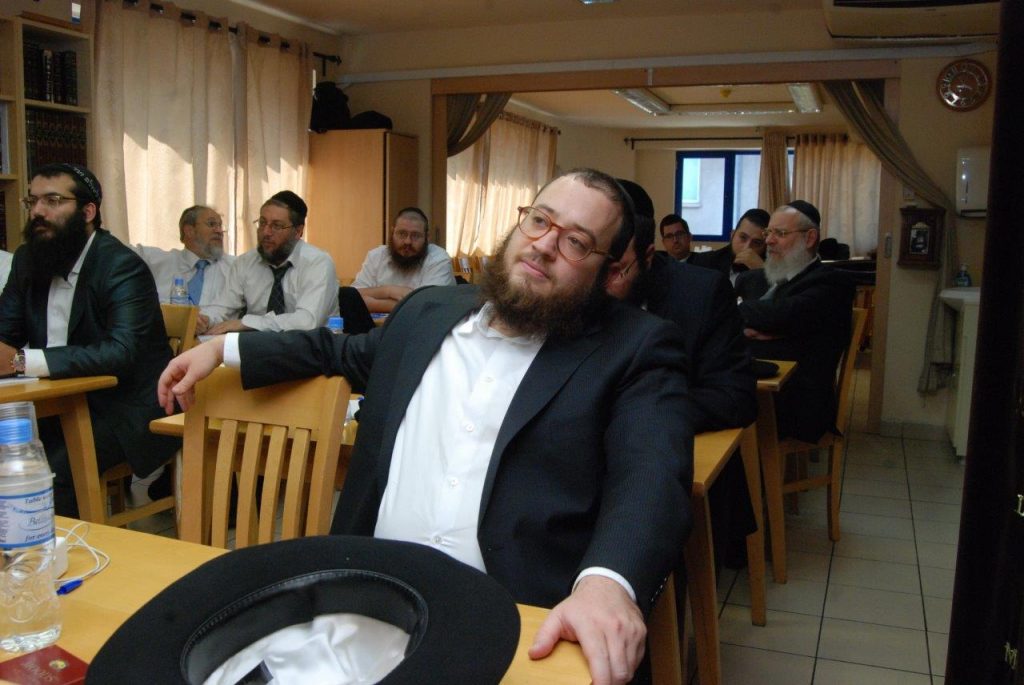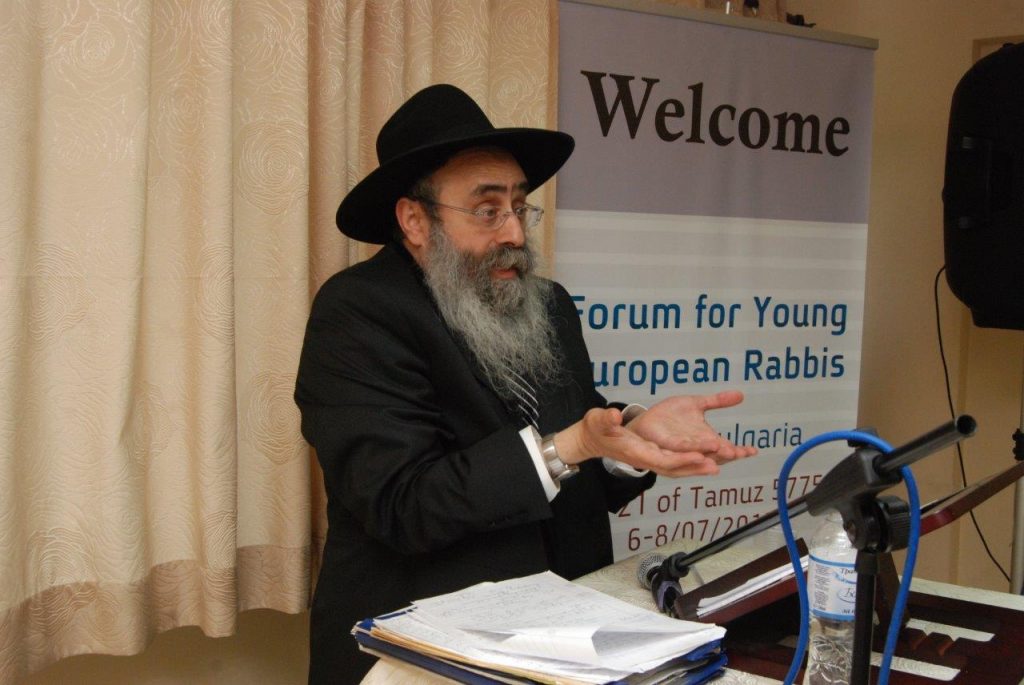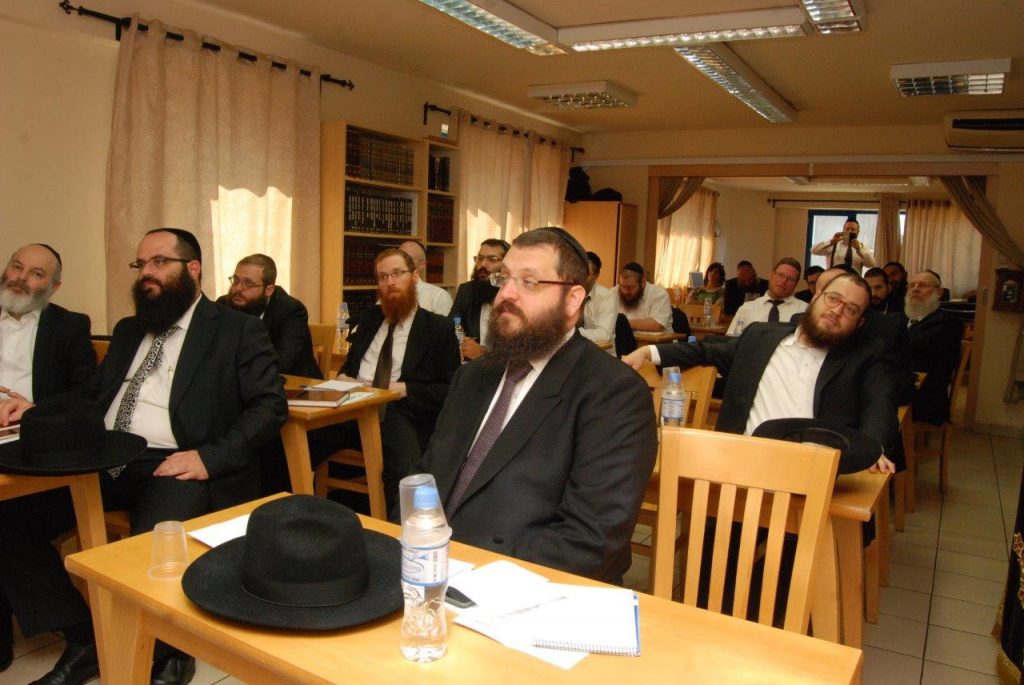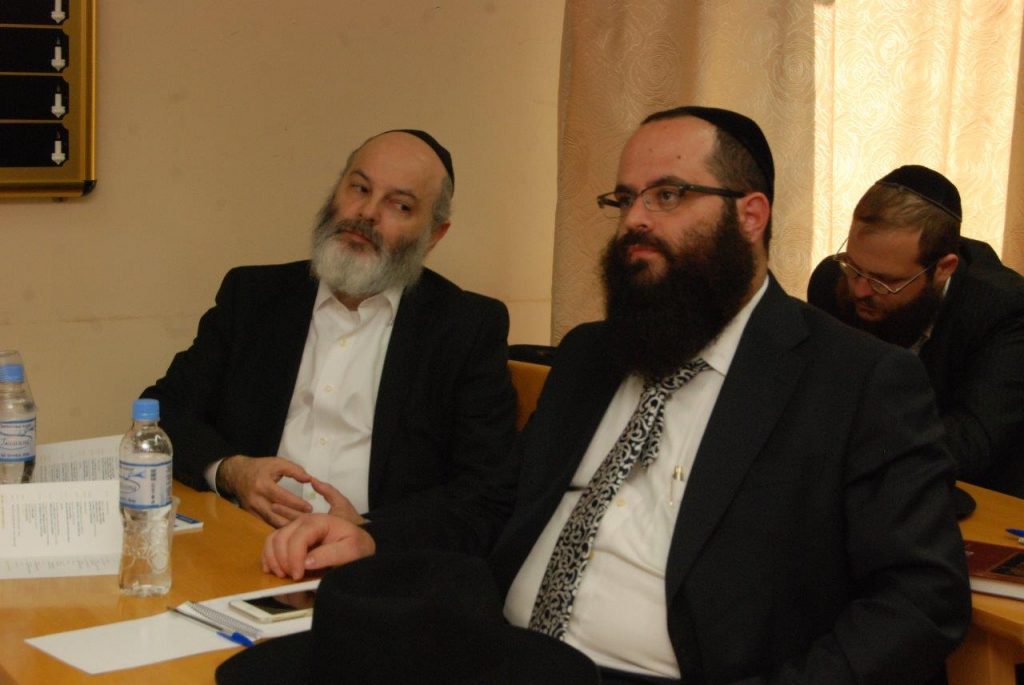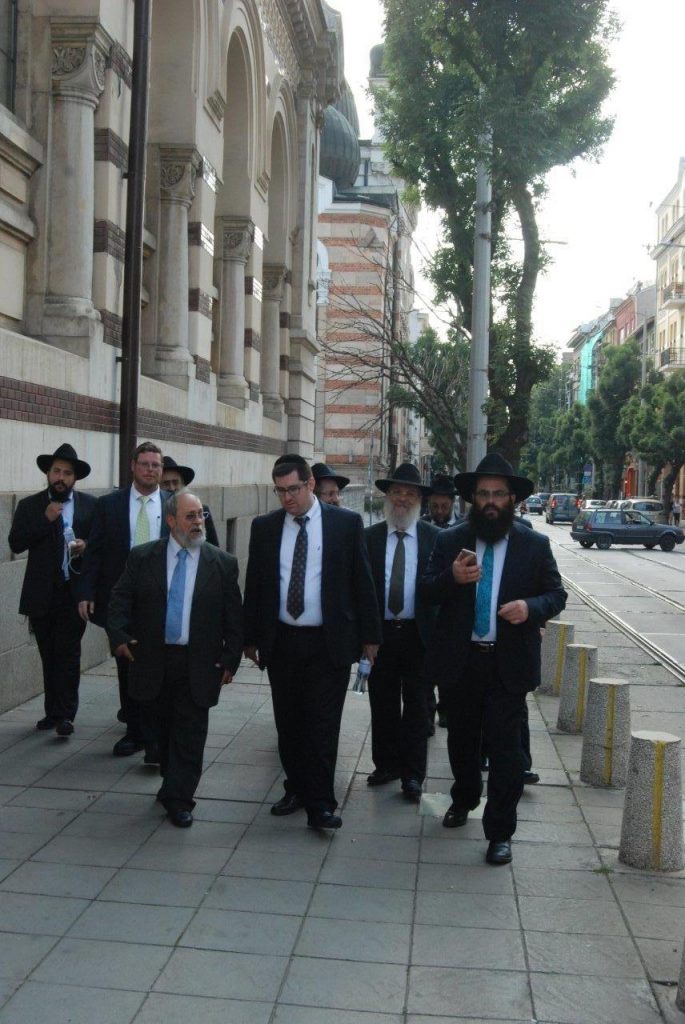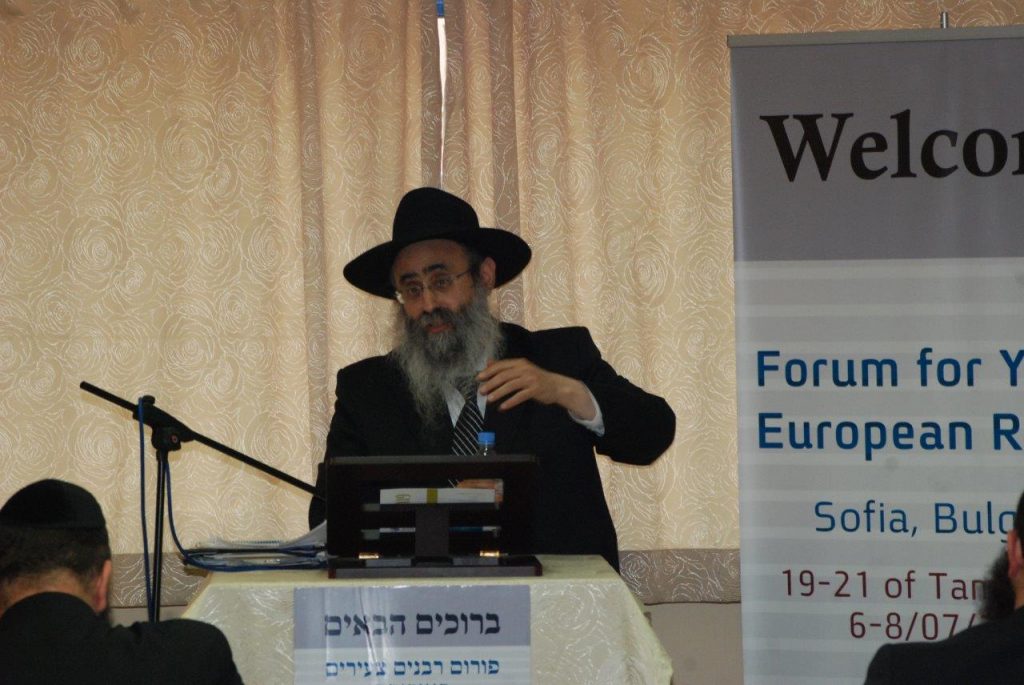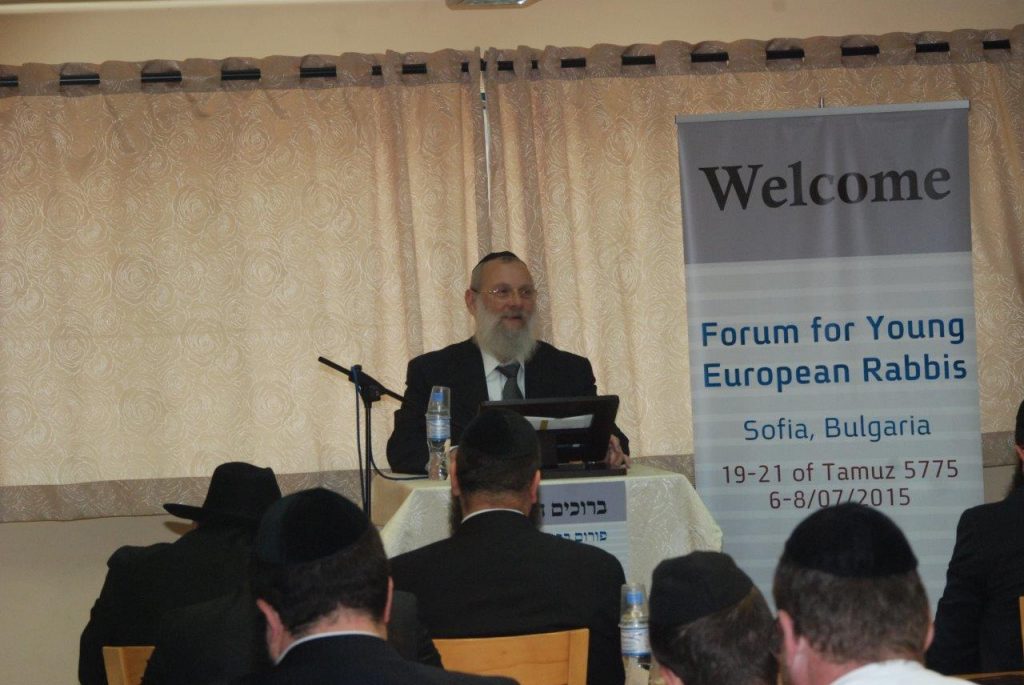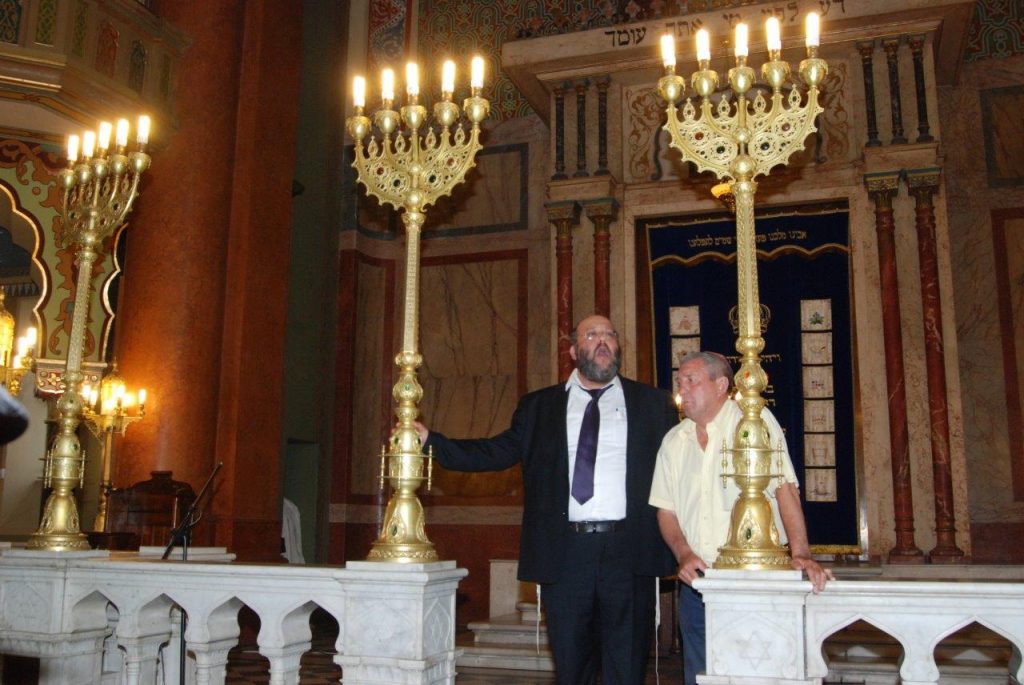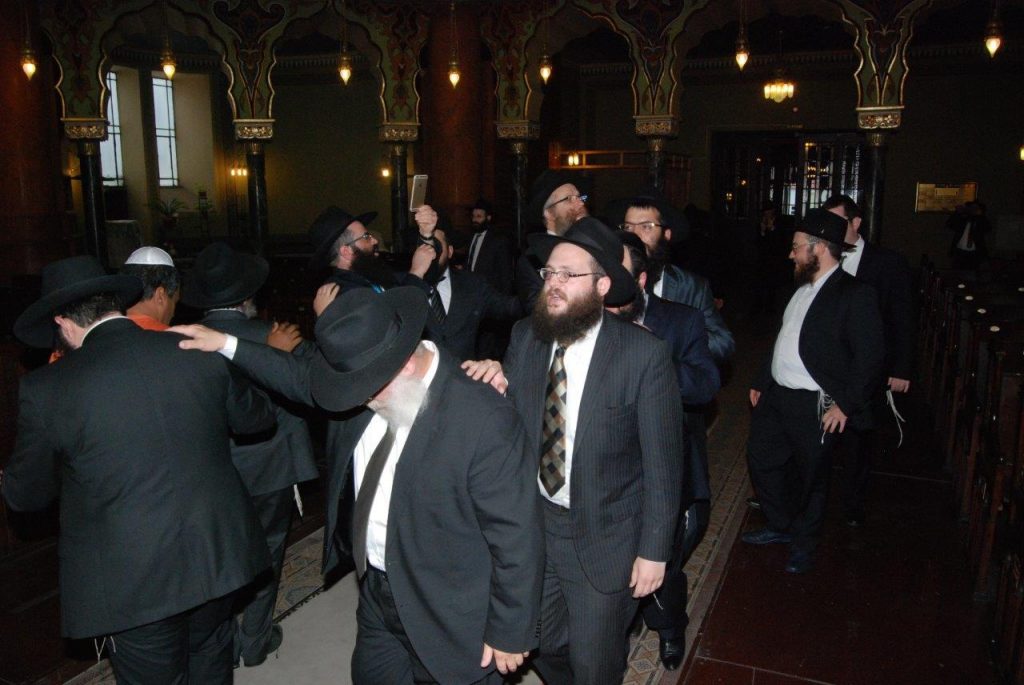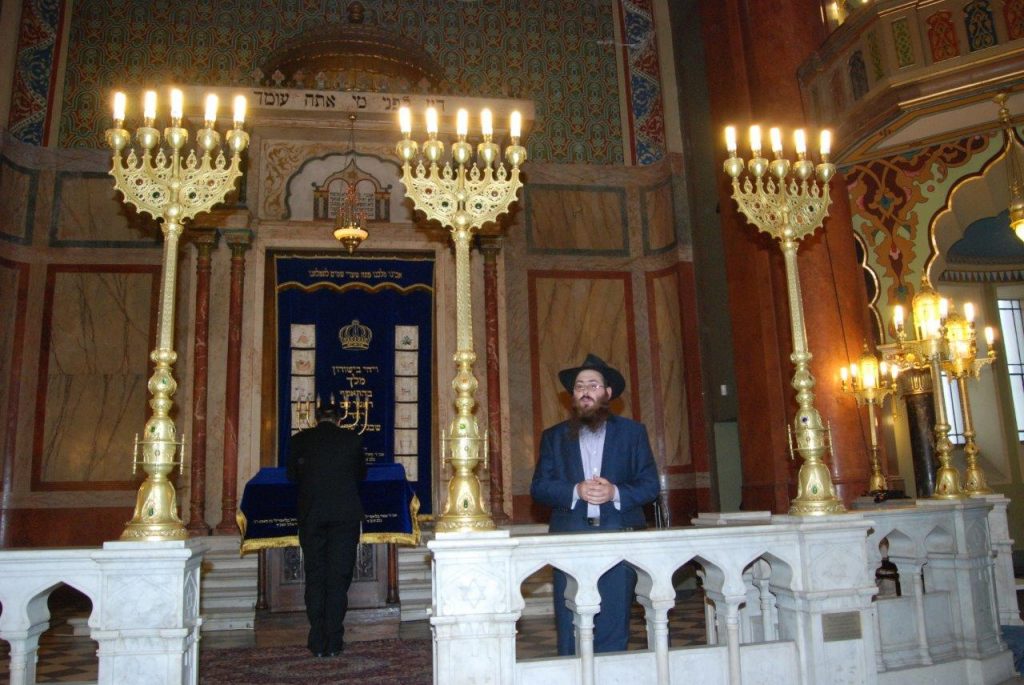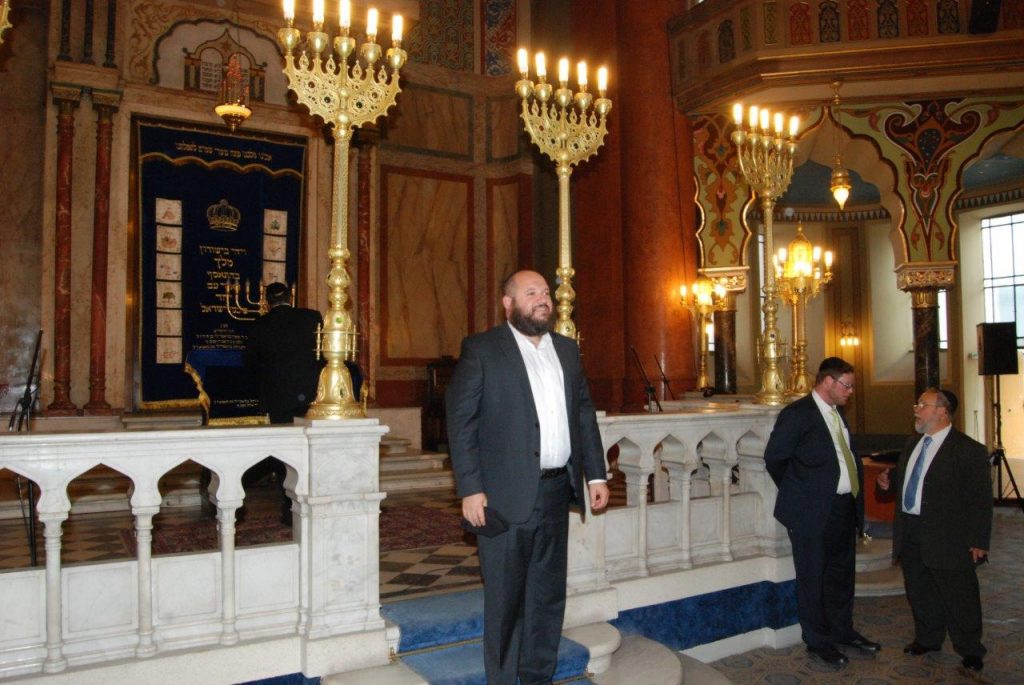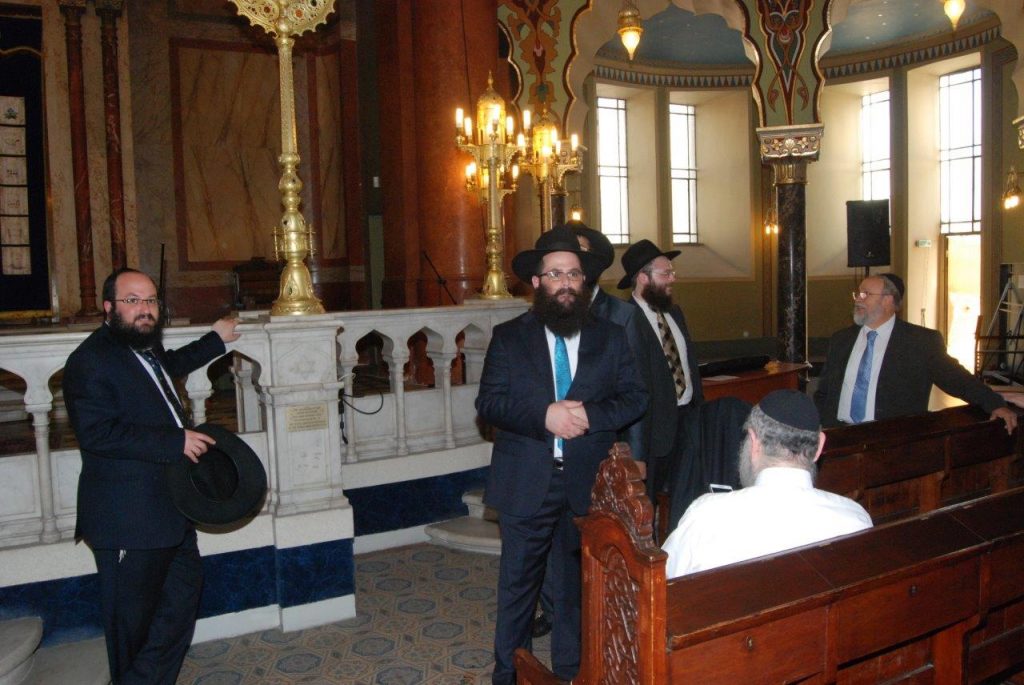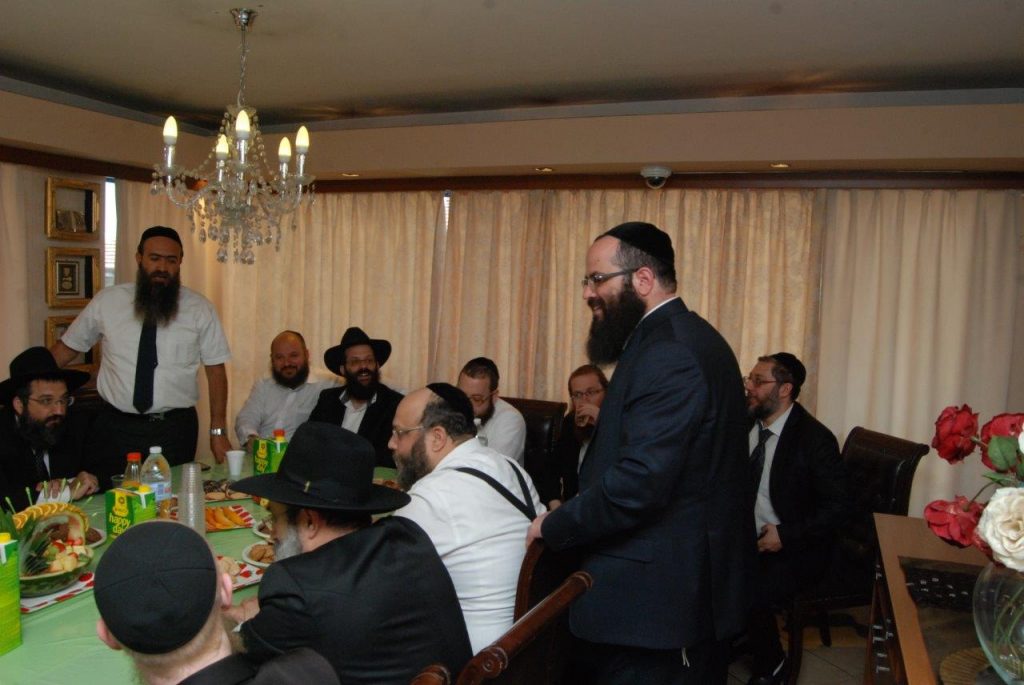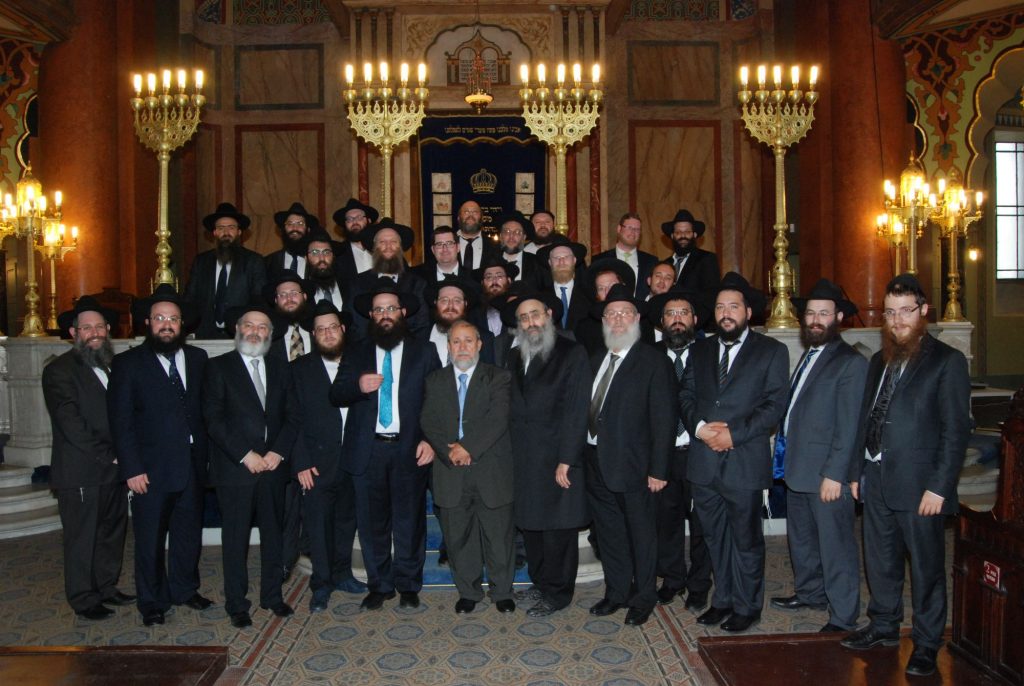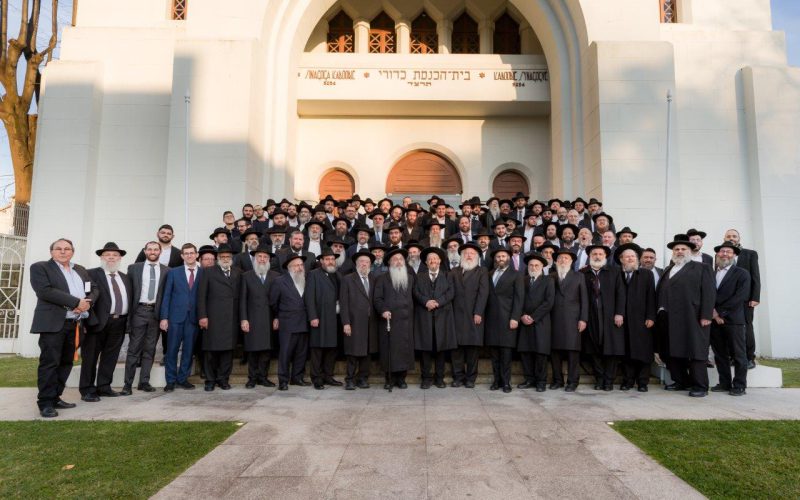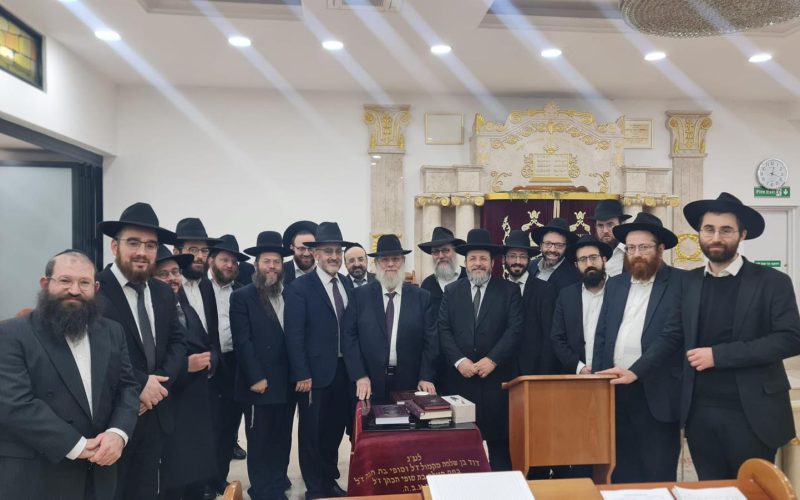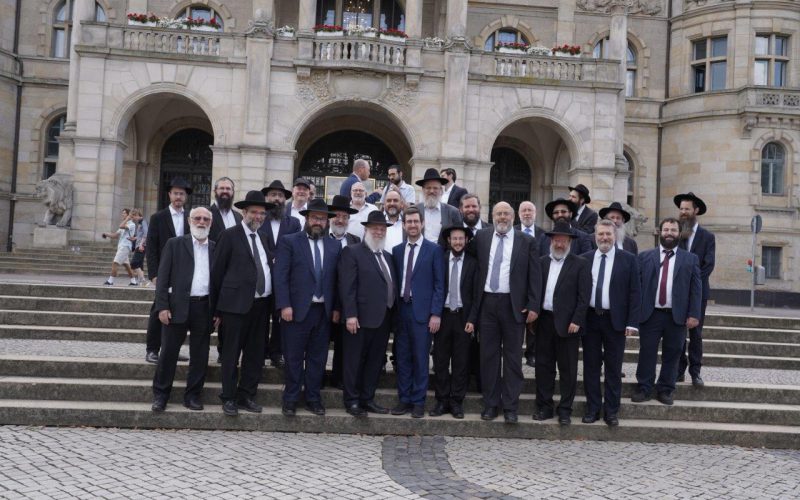Young Rabbis’ Forum Event in Sofia, Bulgaria
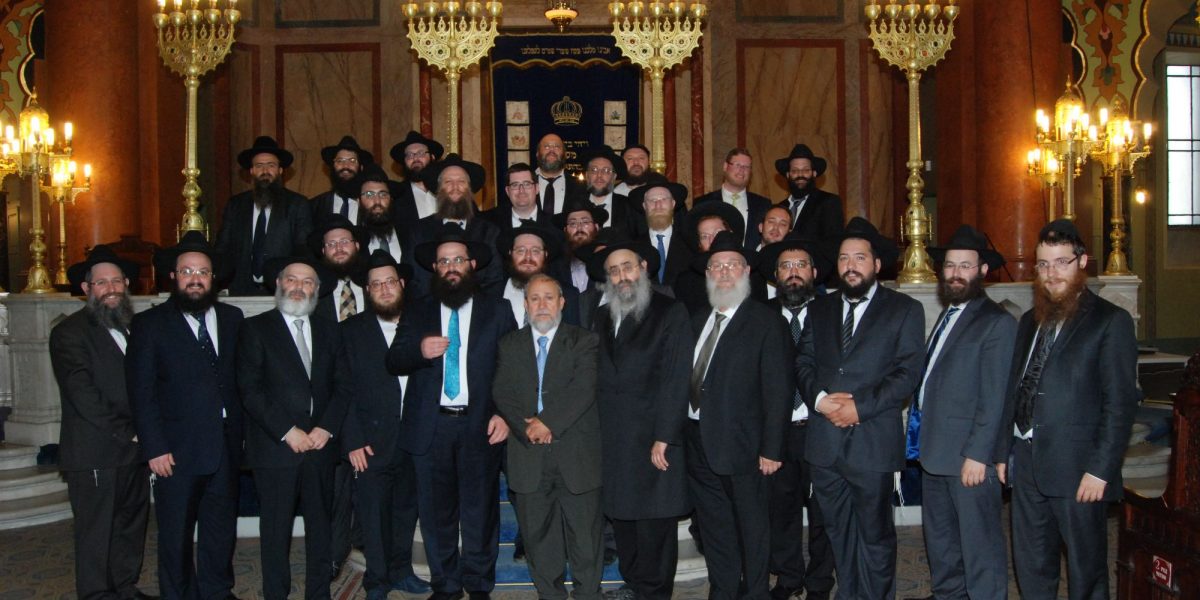
The annual meeting of the Young Rabbis’ Forum began early in the week in Sofia, Bulgaria’s capital, sponsored by the Rabbinical Centre of Europe. As its name implies, dozens of young rabbis from all over Europe come together at this meeting to deal with questions that come up in their various communities throughout the continent.
The concept of having this annual event – where rabbis and speakers address the unique issues that young European rabbis encounter in the course of serving their communities – was launched four years ago, when the RCE realized that the challenges facing today’s young rabbi leading a community are far more complex than the issues that older, more experienced rabbis deal with. These young rabbis, many of whom serve exceptionally large communities, face unique issues and problems. The strategy of bringing them together for a seminar over several days has indeed proven successful.
Rabbi Yosef Solomon of Bulgaria was chosen to host this year’s event in his country’s capital, Sofia. Dozens of rabbis arrived from all over Europe to participate in the conference, which began on Monday, July 6. “We all benefit from the social interaction among the community of young rabbis,” Rabbi Solomon explained. “The dialogue between them is particularly important, and all the rabbis who have come to the conference recognized how many issues they share in common, despite the fact that every community is unique.”
Two topics were central to this year’s conference: the children’s Torah education in the rabbis’ homes, and assimilation within their communities. “When the rabbi and his wife are heavily involved in developing the community,” said Rabbi Menachem Margolin, director of the RCE and the driving force behind this conference, “in many cases, their own children are in danger of being neglected. These children are growing up outside the natural protection of a Torah-based community, and this can certainly influence them. Many of these children are home-schooled, since there is no appropriate school they can attend where they are living.”
In the course of their discussions on educating their children, the rabbis heard from Rabbi Menachem Mendel Gluckowsky, rabbi of the Chabad community in Rechovot and member of the Chabad beis din. Rabbi Gluckowsky raised the issue of the children’s Torah education, listened to some of the rabbis describe the complex challenges they face, and explained in great detail how it is possible for a family to manage all aspects of their lives – community life, family life, and educating their children, all at the same time.
The rabbis also addressed the topic of assimilation, which is considered the focus of many rabbis’ work in a wide variety of communities in Europe. In the midst of the discussion, the question was raised: What can we do for the Jewish university students, who are so vulnerable to the risk of assimilation? Harav Natan Rosen, sought-after lecturer in academia, presented to the conference participants the most effective ways to help those students and to ensure that they don’t lose their Jewish identity, R”l.
In contrast to previous years, the topic of economics was also addressed several times during the conference. The situation in some European countries, which are threatened by the financial crisis in Greece and its ripple effects – and this impacts all members of the Euro bloc – is more precarious than ever. The rabbis related that this situation has made it increasingly difficult to survive financially.
The climax of the conference was a special evening event in which government officials participated as well, as they wished to come and express their appreciation for the activities of the Jewish community in Sofia. The head of Bulgaria’s ruling party was kind enough to attend, as were the local minister of education and the police commissioner, who is in charge of Bulgaria’s security forces. The police commissioner has been a devoted friend of the local Jewish community, and following the shocking terrorist attack in Burgas three years ago, he ordered massive increases in security for the city’s Jewish community. In his address to the rabbis, the commissioner called upon his counterparts everywhere in Europe to initiate stronger security for Jewish buildings and community centers on the continent.
“For the rabbis, this was a rare opportunity to come and see that they’re all ‘in the same boat’ with dozens of other rabbis who are dealing with the same challenges,” said Rabbi Aryeh Goldberg, deputy director of the RCE. “The fact that these are young rabbis – between the ages of 25 and 35 – makes it all the more necessary to guide them and assist them in their various challenges. Community rabbis must deal with a huge variety of questions, and when they come together, their creative thinking is greatly enhanced and they have much more potential to solve complicated problems. I would like to take this opportunity to express my appreciation to the dedicated staff, Harav Avraham Abba Turetsky, Harav Mordechai Biton and Harav Yossi Beinhaker, who work tirelessly for the benefit of the community rabbis in Europe.”
